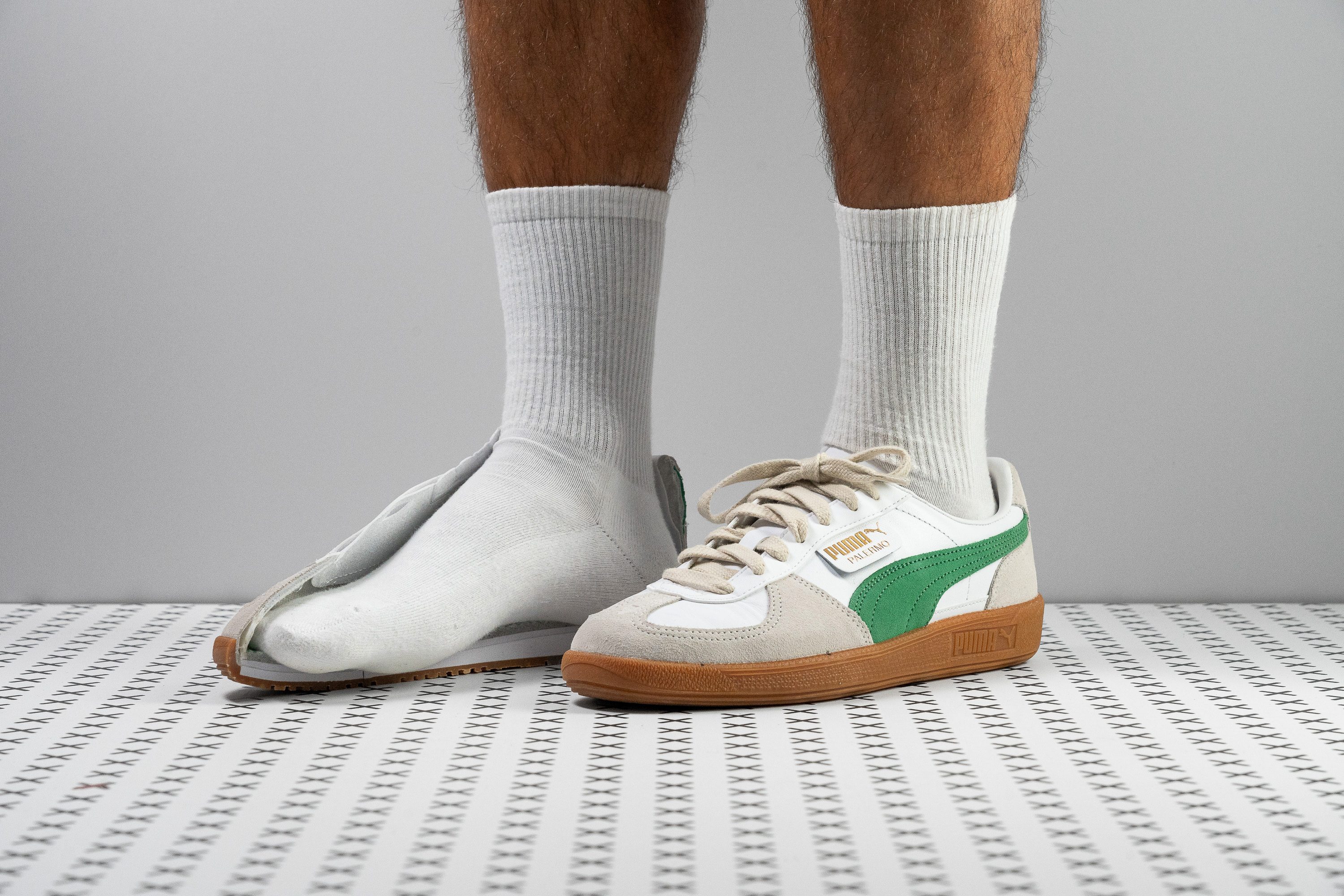Our verdict
- Top pick in best business casual trainers
Pros
- Real leather and suede at a moderate price
- Clean terrace sneaker vibe
- Surprisingly durable materials
- Flexible and easy on foot
- Excellent value for money
- Feels grounded and stable
- Stylish alternative to Adidas Samba
Cons
- Lacks comfort and cushioning for all-day wear
- Non-removable insole
- Very minimal in-shoe padding
- Lacks traction on wet surafces
Audience verdict
Comparison
The most similar trainers compared
+ + Add a shoe | |||||
|---|---|---|---|---|---|
| Audience score | 92 Great! | 93 Great! | 95 Superb! | 91 Great! | |
| Price | £75 | £120 | £100 | £100 | |
| Style | Business casualClassicSportyMinimalist | ClassicRetroSporty | ClassicRetroSporty | RetroSportyMinimalist | |
| Shock absorption | Low | Low | Low | Moderate | |
| Energy return | Low | Moderate | Low | Moderate | |
| Traction | Moderate | Moderate | High | Moderate | |
| Breathability | Moderate | Moderate | Breathable | Warm | |
| Weight lab | 13.1 oz / 371g | 14.8 oz / 420g | 14.9 oz / 422g | 12 oz / 339g | |
| Size | True to size | True to size | True to size | True to size | |
| Midsole softness | Firm | Firm | Firm | Firm | |
| Material | Gum SoleLeatherSuede | Cup SoleLeather | LeatherSuede | Cup SoleLeather | |
| Season | SpringFall | SpringFall | SpringFall | SpringFall | |
| Inspired from | Football | Basketball | Basketball | Tennis | |
| Width / fit | Narrow | Medium | Wide | Medium | |
| Toebox width | Narrow | Medium | Medium | Narrow | |
| Leather/suede quality | Real leather | Real leather | Real leather | Real leather | |
| Toebox durability | Good | Decent | Decent | Decent | |
| Heel padding durability | Decent | Decent | Decent | Bad | |
| Outsole durability | Decent | Decent | Decent | Good | |
| Heel stack lab | 22.6 mm | 23.1 mm | 24.6 mm | 23.2 mm | |
| Stiffness | Moderate | Moderate | Moderate | Moderate | |
| Tongue padding | Very thin | Average | Thick | Average | |
| Drop lab | 7.0 mm | 7.6 mm | 10.1 mm | 8.5 mm | |
| Forefoot | 15.6 mm | 15.5 mm | 14.5 mm | 14.7 mm | |
| Removable insole | ✗ | ✓ | ✓ | ✓ | |
| Heel tab | None | None | None | None | |
| Torsional rigidity | Flexible | Moderate | Moderate | Moderate | |
| Heel counter stiffness | Moderate | Moderate | Stiff | Moderate | |
| Closure | Laces | Laces | Laces | Laces | |
| Top | Low top | Low top | Low top | Low top | |
| Ranking | #51 Top 43% | #25 Top 21% | #8 Top 7% | #55 Top 46% | |
| Popularity | #67 Bottom 44% | #21 Top 18% | #7 Top 6% | #53 Top 44% |
Who should buy
Tired of walking into a room full of Sambas? Then it's time to consider this beautiful alternative from PUMA! We believe that the Palermo sneaker is right for you if:
- you want the sporty vibe of a '70s/'80s terrace sneaker (gum sole and all)
- you prefer light, minimal, and low-to-the-ground trainers
- you are after a stylish suede/leather silhouette at an affordable price
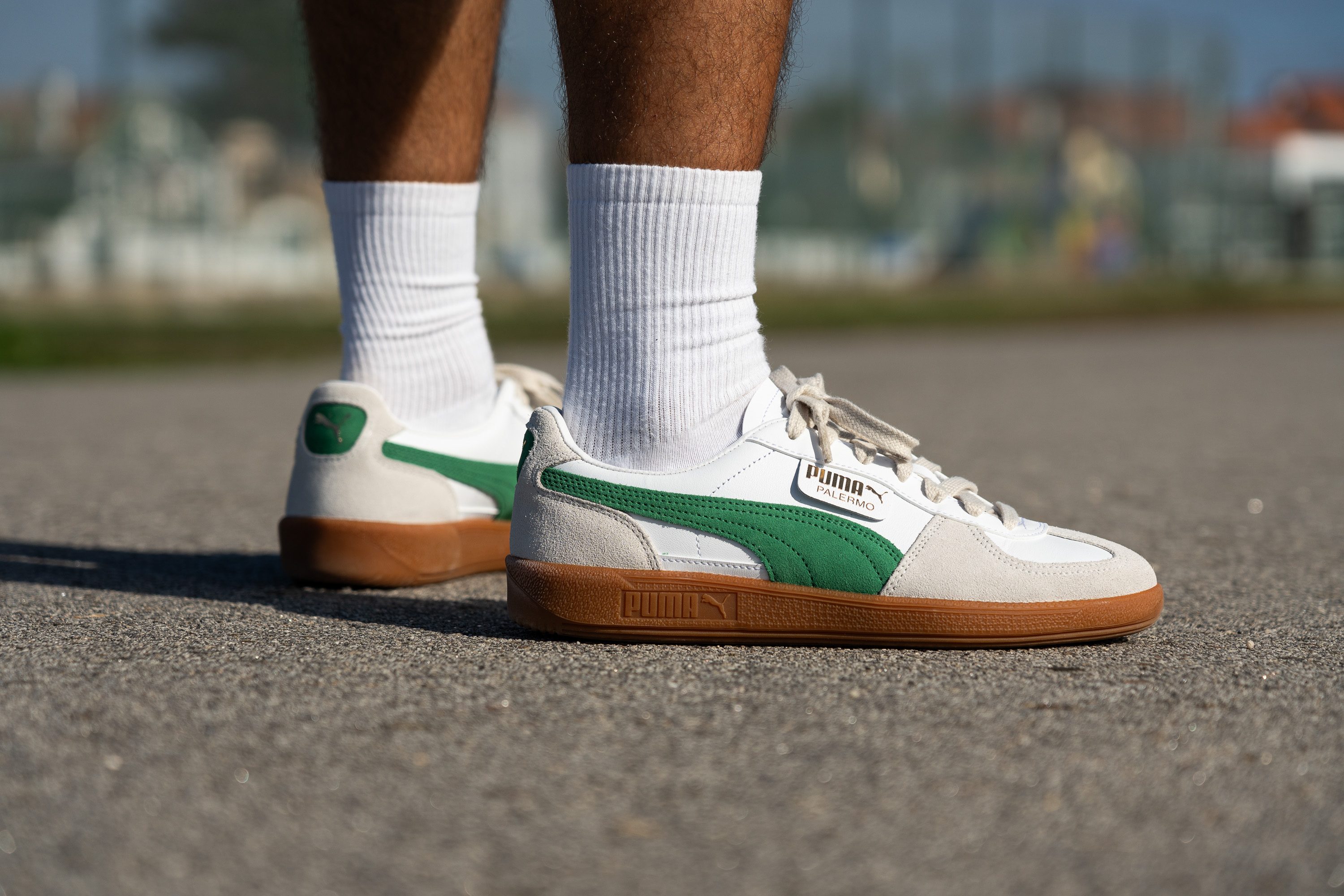
Who should NOT buy
If you are chasing comfortable footwear above all else, we don't think you will be happy with the PUMA Palermo. Its midsole is so thin and firm that you won't be getting the necessary cushioning for a day full of walking.
A more suitable PUMA sneaker would be the RS-X and if you are up for exploring other brands, New Balance and Nike have some pretty comfy trainers too.
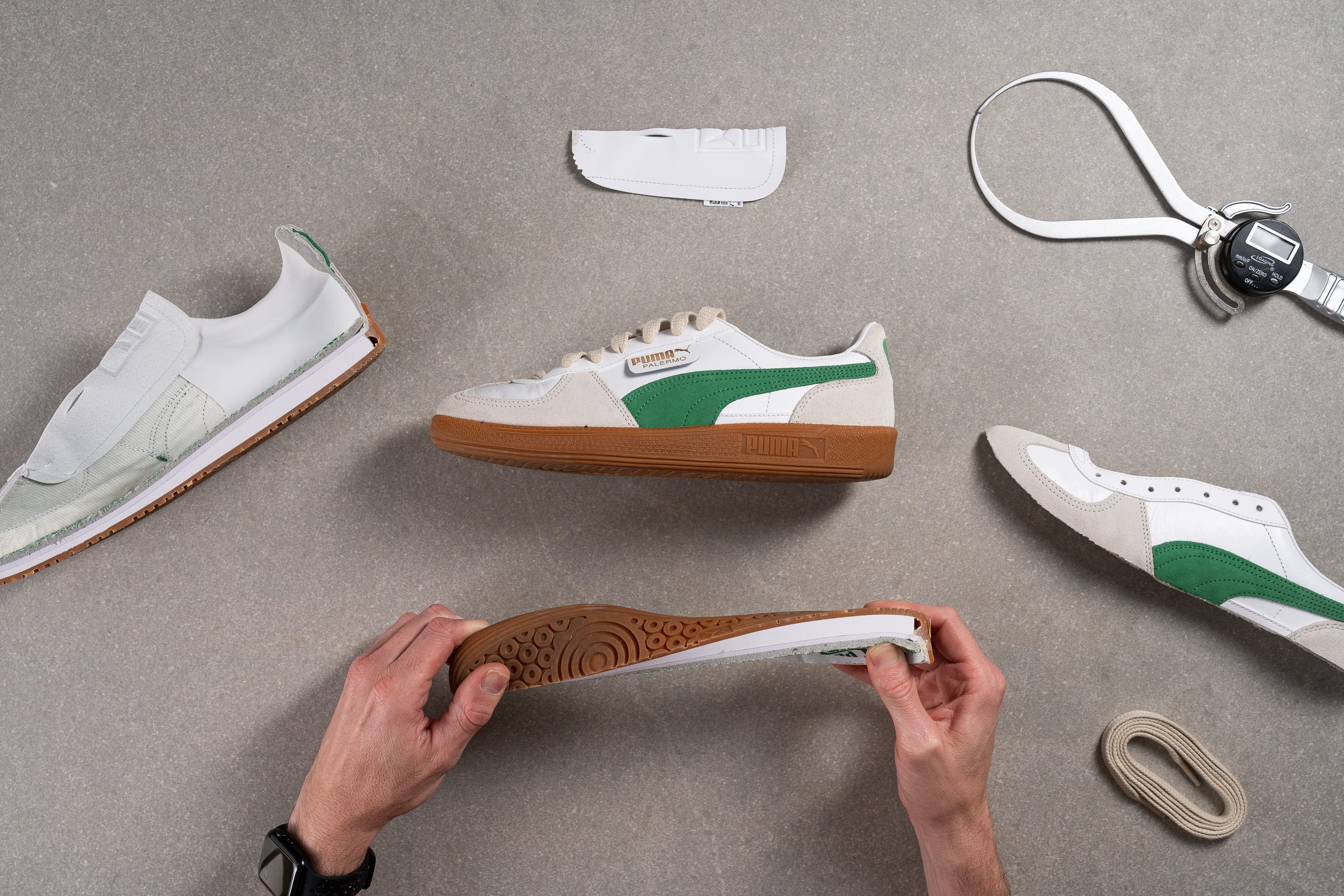
Cushioning
Shock absorption
Our shock absorption test confirmed that the Palermo offers a very moderate buffer from the ground forces with a below-average reading of 79 SA. Not our top choice for hours of walking for sure!
But on the bright side, the shoe made us feel very stable and firmly planted on the ground.
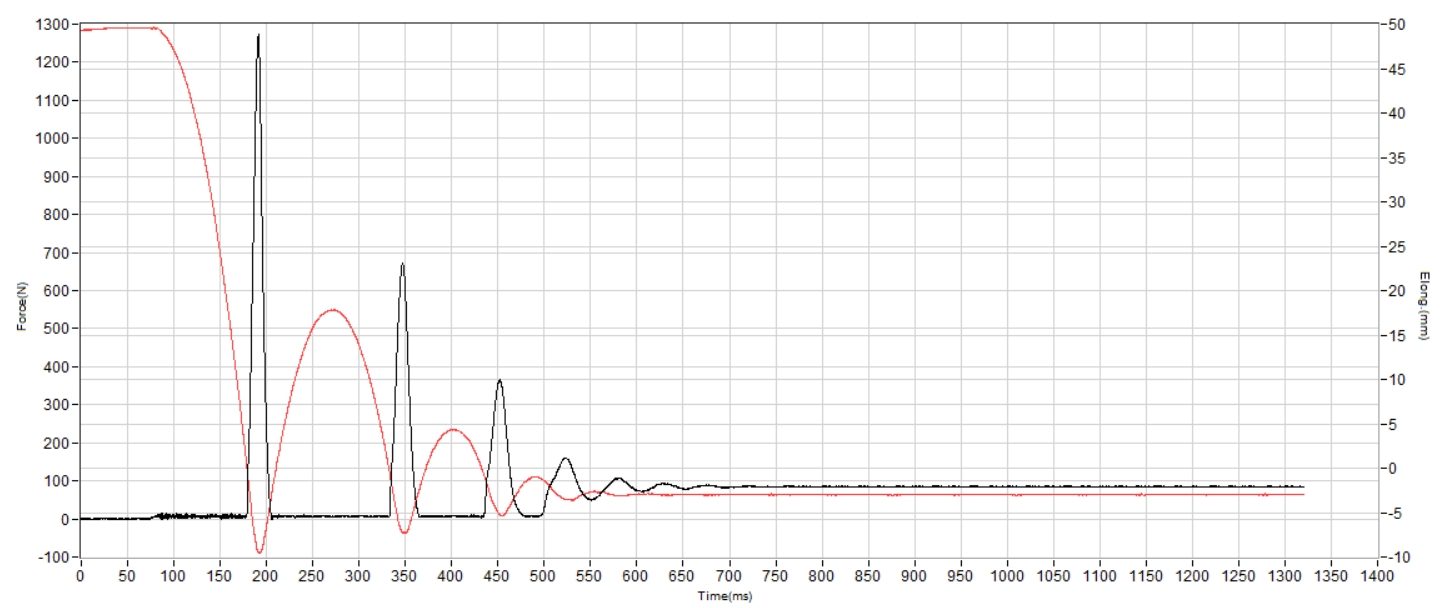
| Palermo | 79 SA |
| Average | 89 SA |
Energy return
With very little give or rebound, the PUMA Palermo's sole feels quite static. Its lack of responsiveness is reflected in the shoe's low energy return of 42%.
| Palermo | 42.3% |
| Average | 50.2% |
Heel stack
Choosing the Palermo for day-to-day wear, expect to feel VERY close to the ground in this low-profile sneaker.
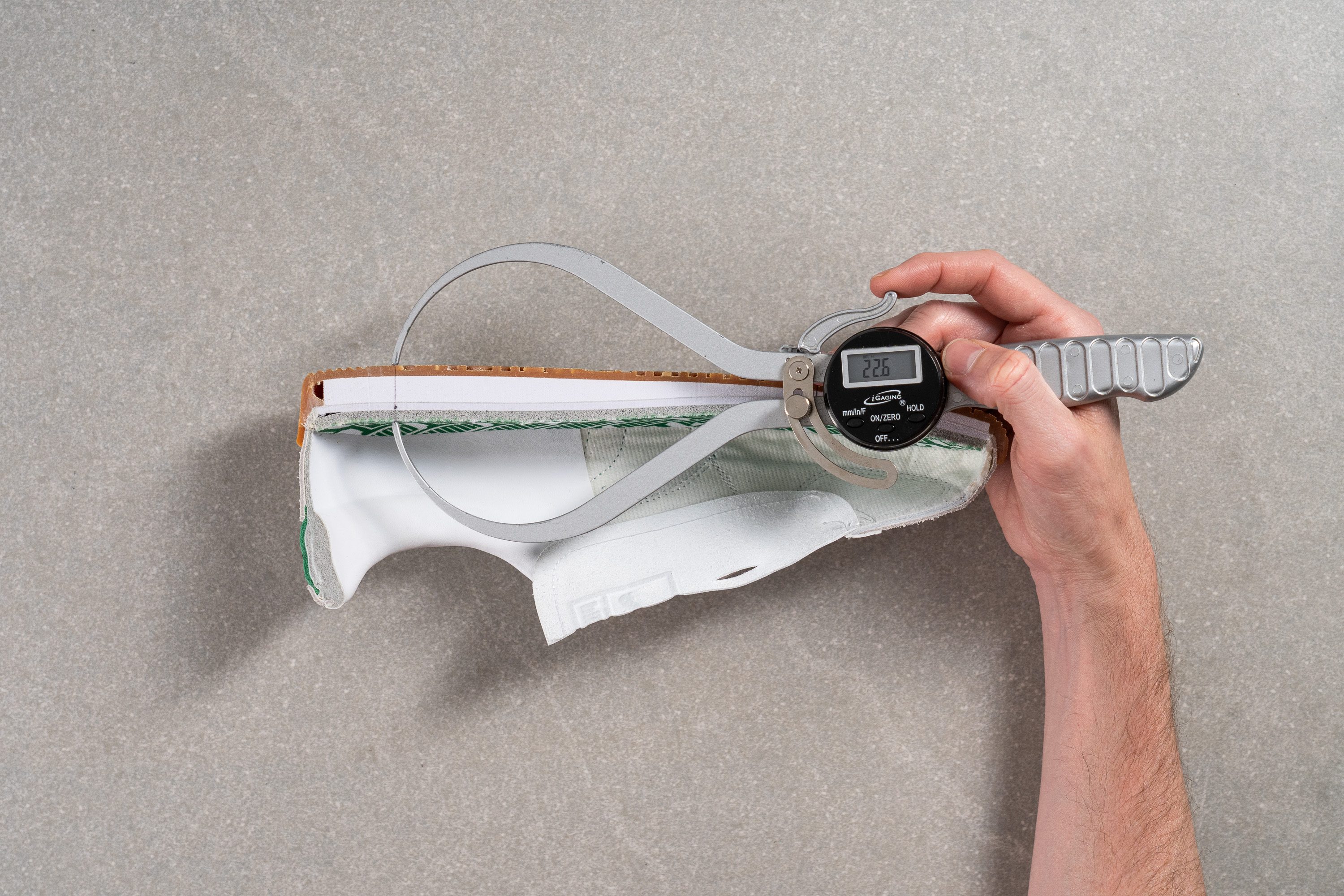
We measured its heel stack at only 22.6 mm which is a solid 7 mm lower than the average lifestyle sneaker. It is, however, equally grounded as the famous Samba and the Gazelle.
| Palermo | 22.6 mm |
| Average | 30.7 mm |
Forefoot stack
The sole gets even thinner in the forefoot with only 15.6 mm of material separating the ball of foot from the ground.
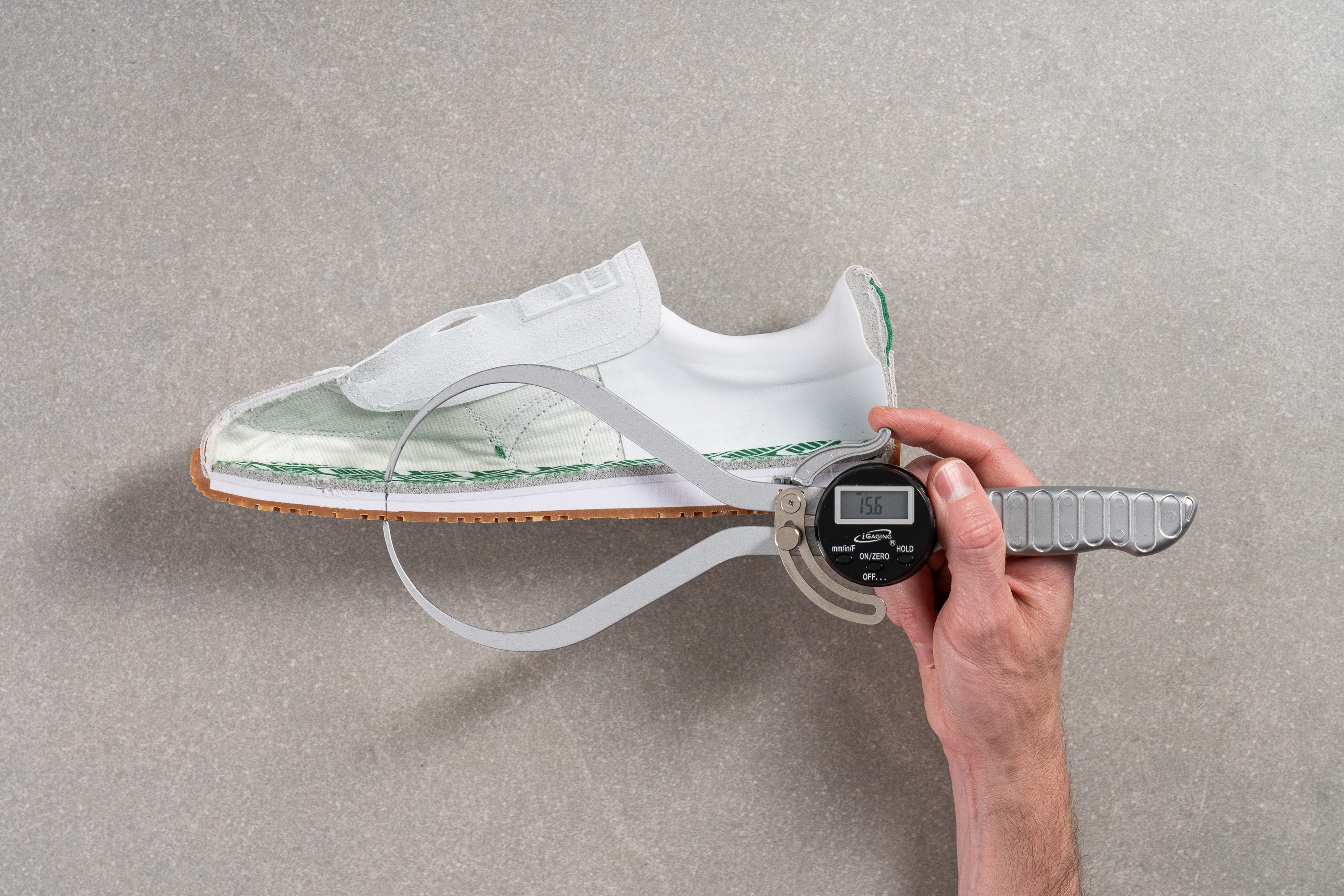
Cushioning is practically non-existent here which makes the Palermo less than ideal for long hours of walking and standing.
| Palermo | 15.6 mm |
| Average | 19.5 mm |
Drop
The Palermo has a moderate heel-to-toe incline of 7.0 mm. This means that the heel is slightly elevated above the toes putting the foot in a less flat position.
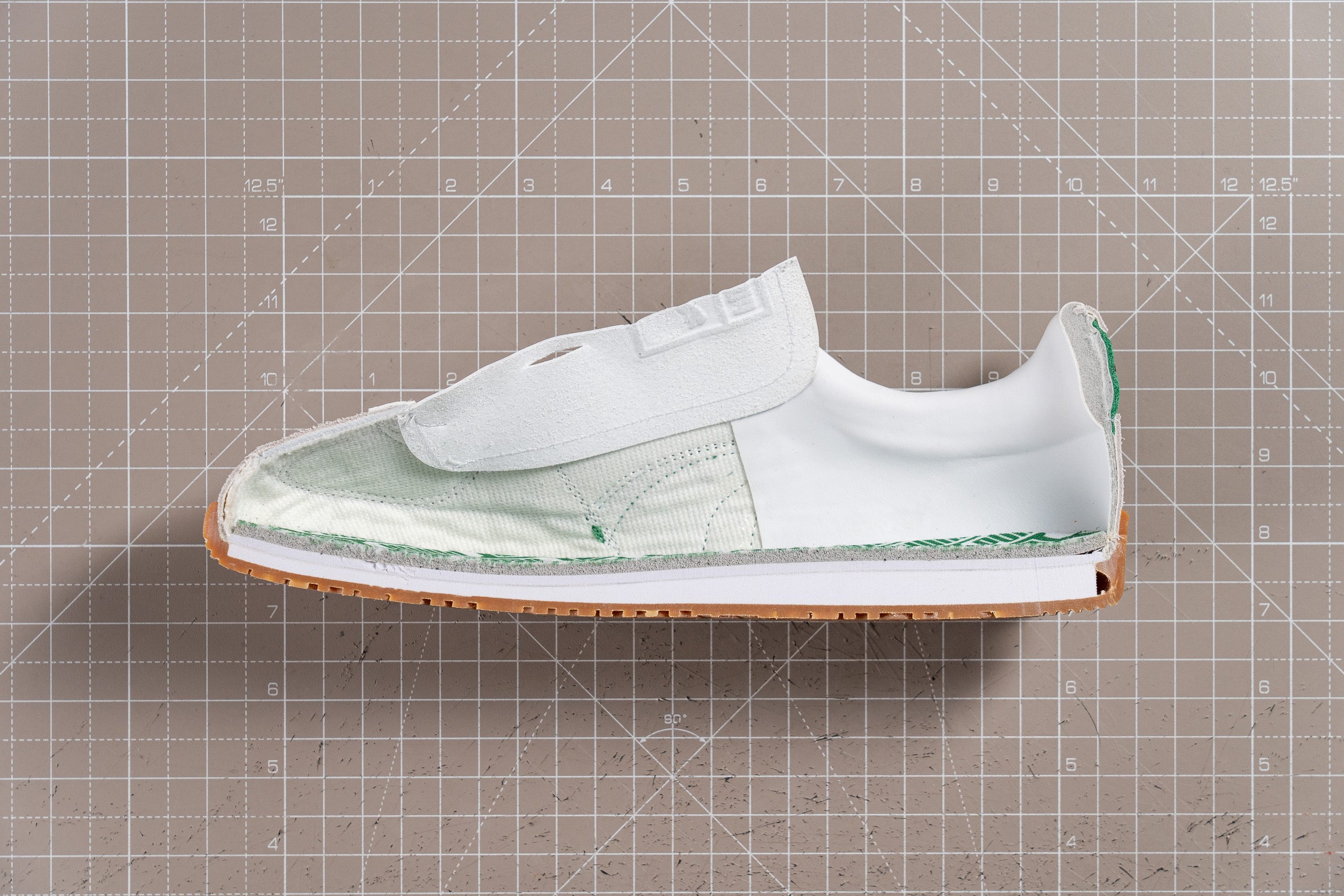
| Palermo | 7.0 mm |
| Average | 11.2 mm |
Midsole softness
The primary midsole material of the Palermo is made of pretty dense EVA foam.
Pressing a Shore A durometer against it returned a notably higher-than-average reading of 37.5 HA. For reference, this is 28% firmer than the typical lifestyle sneaker!
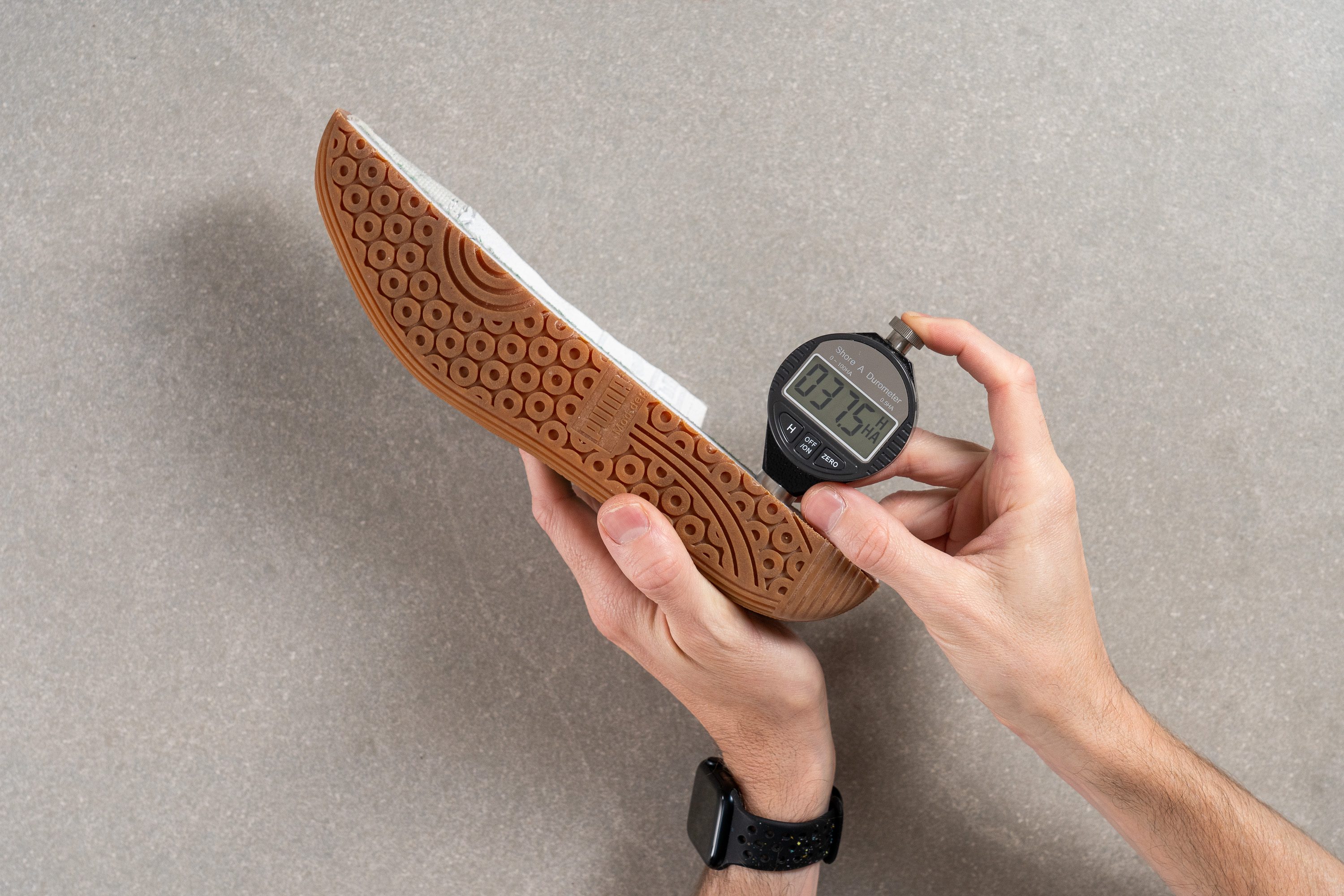
| Palermo | 37.5 HA |
| Average | 28.6 HA |
Size and fit
Size
PUMA Palermo fits true to size (96 votes).
Internal length
| Palermo | 270.5 mm |
| Average | 272.3 mm |
Width / Fit
Because of its streamlined design, the PUMA Palermo looks and fees like a snug sneaker. And our gel mould of its interiors confirmed it.
Our calliper recorded a narrower-than-average reading of 89.2 mm in the widest part of the mould. It offers just enough room for a D-medium foot but not enough to accommodate a wide foot or a bunion.
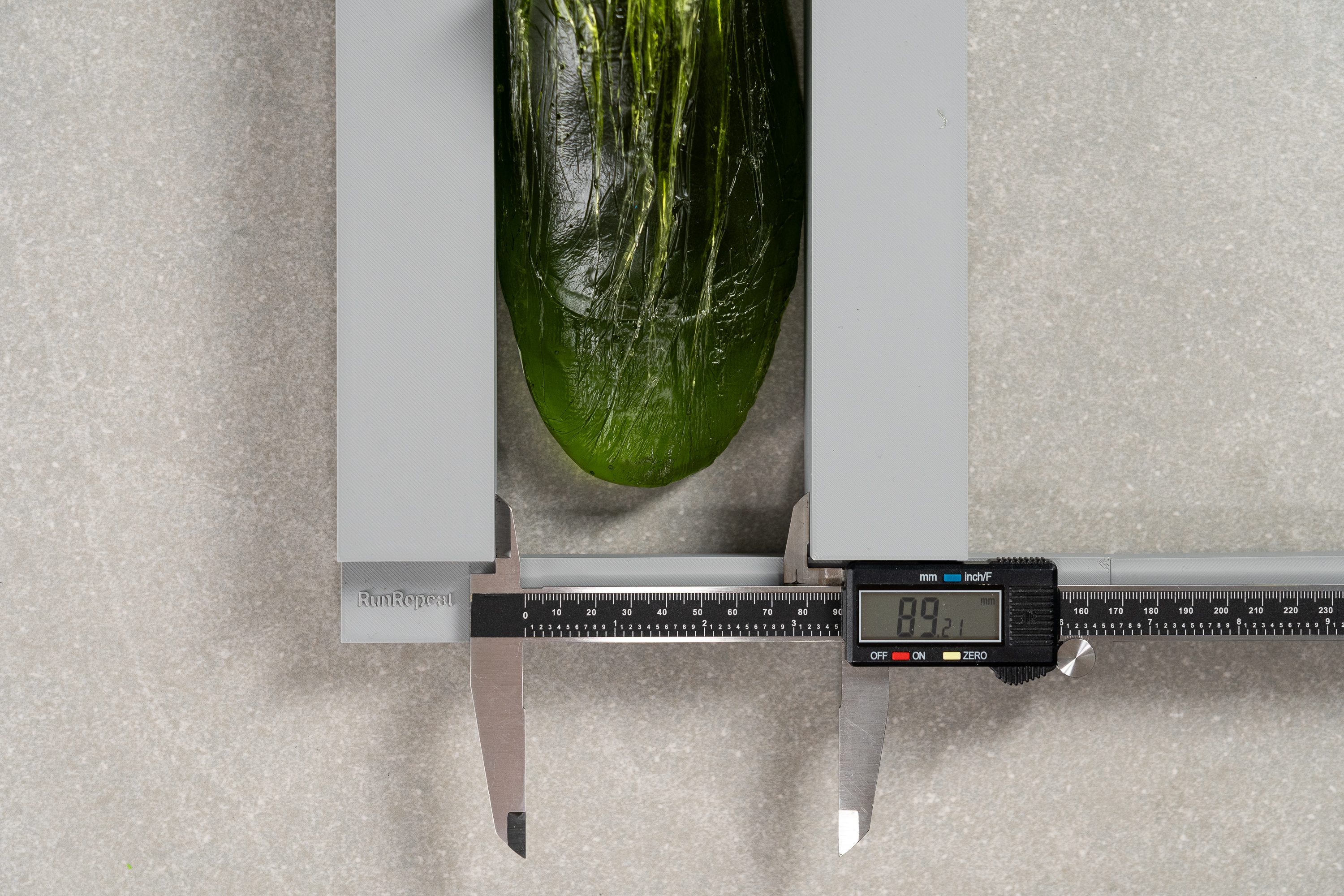
| Palermo | 89.2 mm |
| Average | 92.5 mm |
Toebox width
The Palermo gets proportionally narrow towards the tip of the toebox, too. The tool returned another below-average width of 65.9 mm near the big toe.
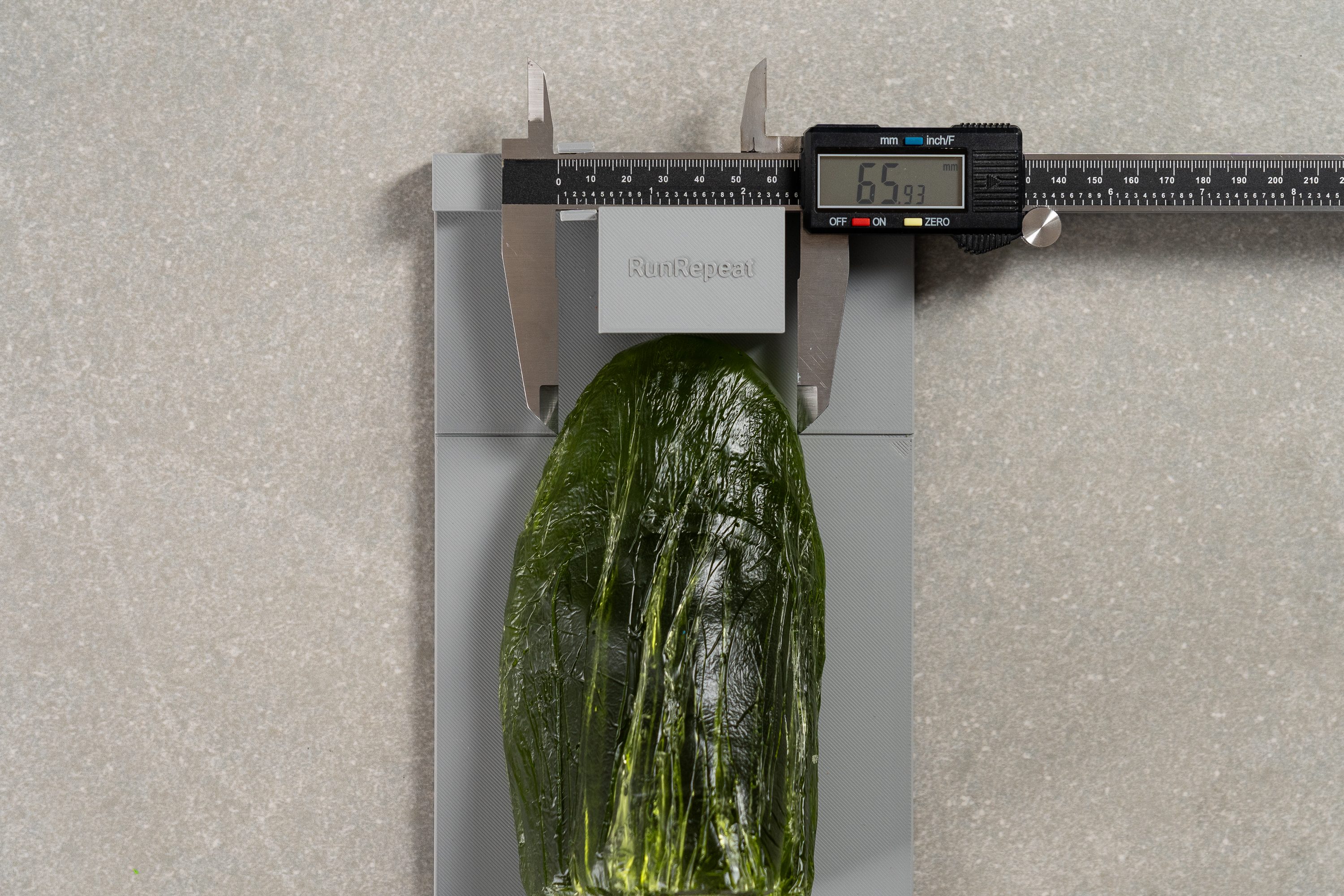
| Palermo | 65.9 mm |
| Average | 68.9 mm |
Toebox height
At least the shoe's vertical space is not limited and showed a slightly taller reading of 28.4 mm.
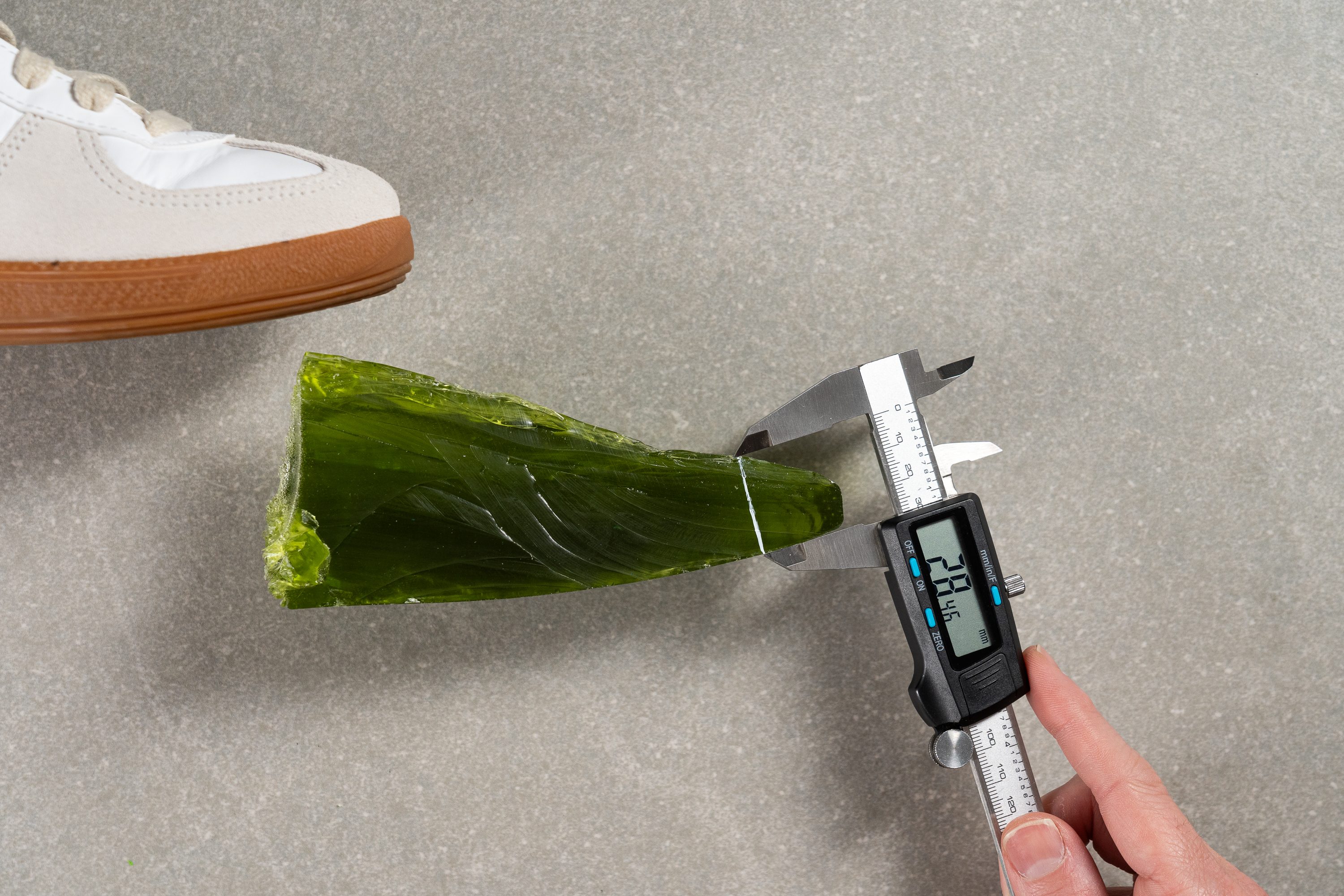
It offers a minor compensation for the shoe's horizontal snugness.
| Palermo | 28.4 mm |
| Average | 27.8 mm |
Traction / Grip
Traction test
We didn't expect much grip from the Palermo's gum rubber outsole and it indeed showed a pretty low coefficient of friction (0.31) in our controlled traction test.
Our lab tests consistently show that gum soles lack the same gripping capacity as their black rubber counterparts. Originally designed for indoor courts and gym floors due to their non-marking features, this softer blend can become very slippery on outdoor surfaces like concrete and stone, especially when the latter are wet.
| Palermo | 0.31 |
| Average | 0.43 |
Outsole design
A large pivot point under the ball of the foot adds retro elements to the PUMA Palermo. The kick's outsole also showcases an intriguing tread pattern, but as our lab test above demonstrated, it serves little purpose on the city streets.
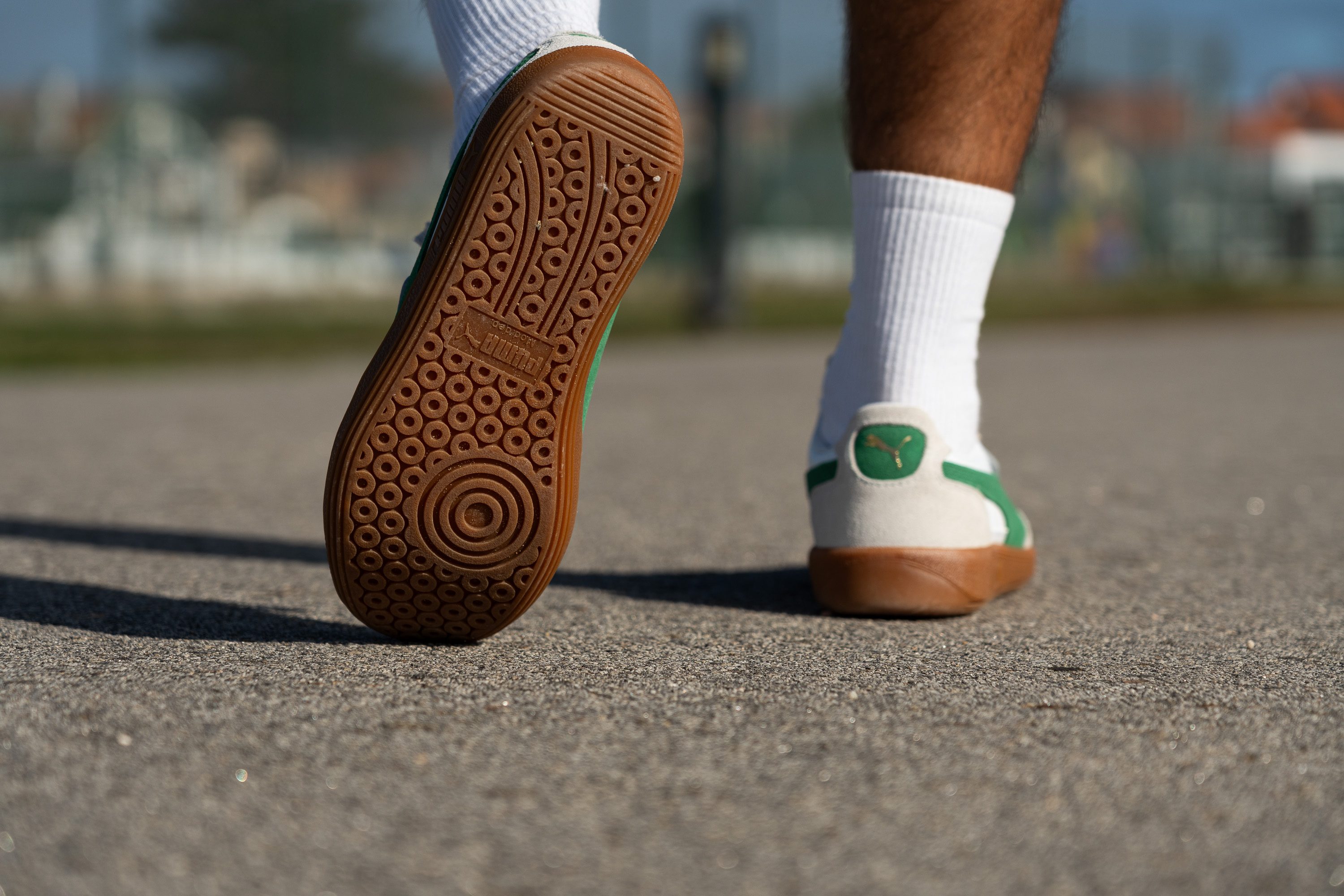
Flexibility / Stiffness
Unrestricted steps are guaranteed in the PUMA Palermo. Its thin and flexible sole needed little effort to bend as our feet transitioned from heels to toes.
How flexible is it exactly? Just like an average casual sneaker, according to our force gauge. It took 14.0N to bend the Palermo to a 30-degree angle which is just as much as it takes most kicks. But please note that it's not as pliable as the Adidas Samba and similar silhouettes.
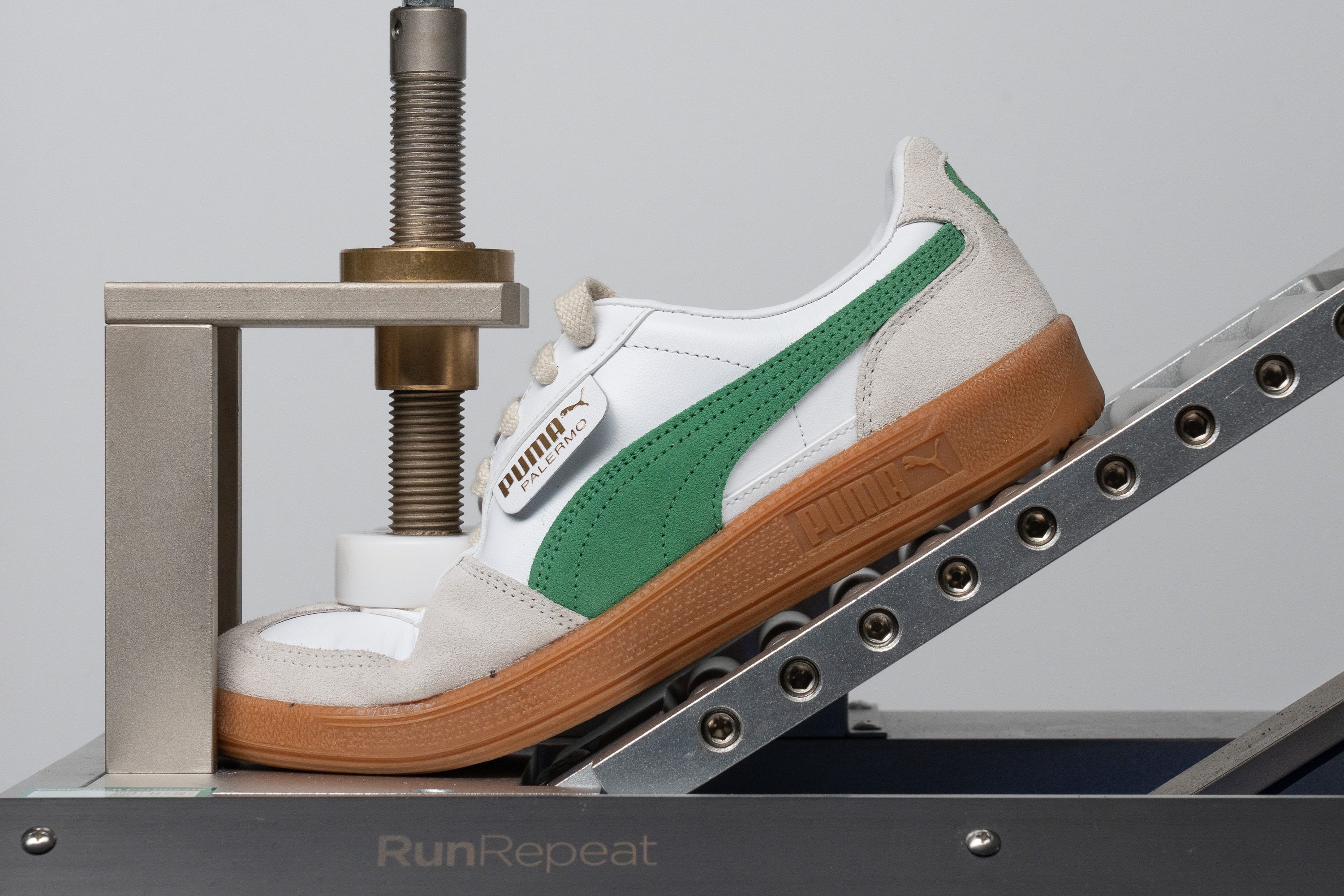
| Palermo | 14.0N |
| Average | 13.3N |
Weight
Even though the PUMA Palermo has a minimal silhouette and feels light on foot, the number on the scale did not drop much lower than average.
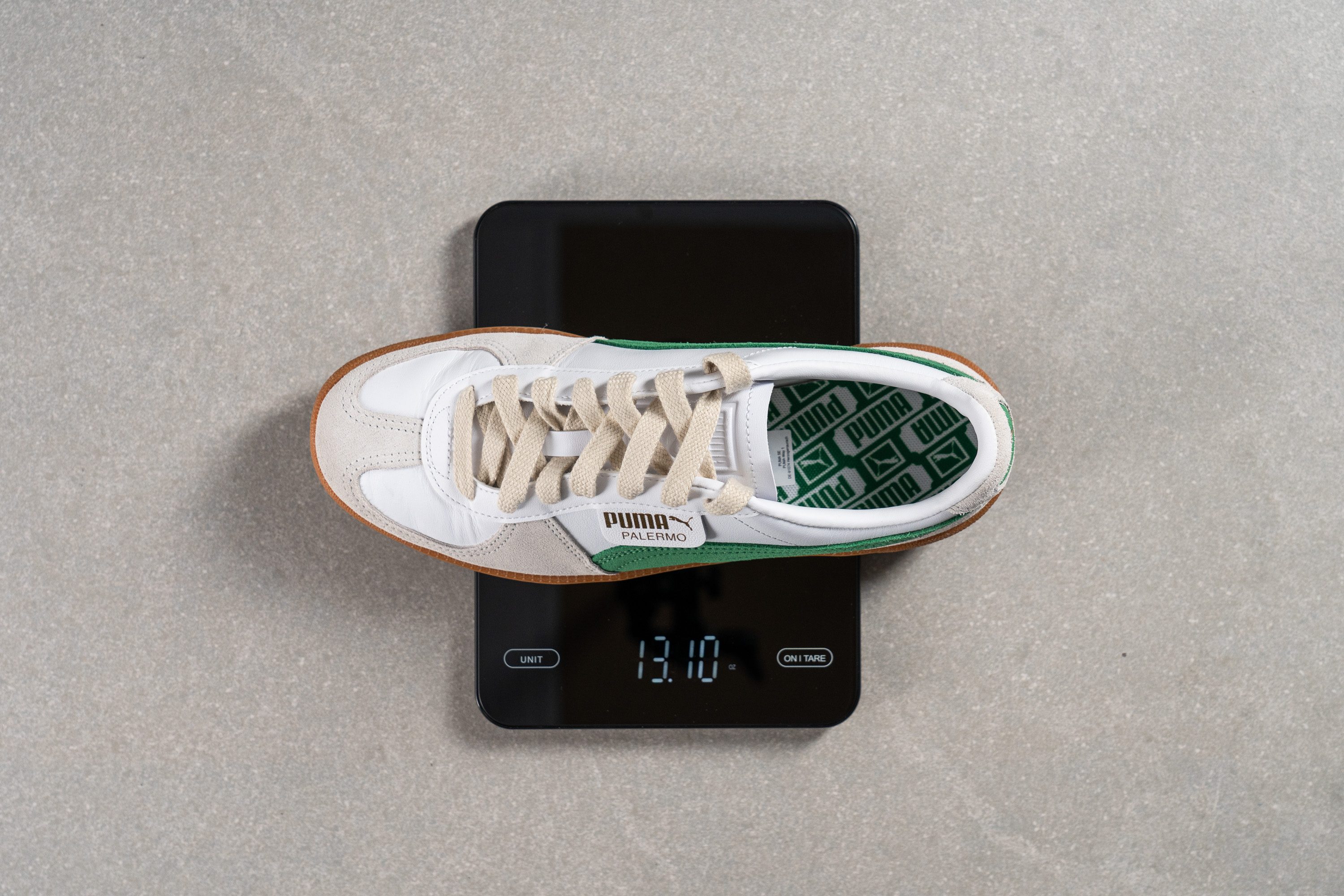
At 13.1 oz (371g) in a men's US size 9, we found that the shoe's weight is on par with the Adidas Gazelle but is about an ounce heavier than the Samba.
| Palermo | 13.1 oz (371g) |
| Average | 13.8 oz (390g) |
Breathability
The Palermo is available in many different upper variations but they all feature either leather or suede as the primary material. And none of these are famous for their breathability.
Even though some of the smoke we pumped into the shoe's upper escaped through the tongue gaps, it wasn't enough to bump up the kick's breathability score above 3 out of 5.
No secret perforations or ventilation holes showed up in our transparency test either.
Thus, we believe that the best time to rock this PUMA sneaker would be a mildly warm spring or fall weather or a cool summer evening.
| Palermo | 3 |
| Average | 3 |
Stability
Lateral stability test
The PUMA Palermo is not a supportive sneaker per se but its low-set build and firm sole naturally make it feel quite stable.
You would need to try hard to roll the ankle in this low-to-the-ground shoe.
Torsional rigidity
As a classic terrace sneaker, the Palermo's minimal construction makes it highly flexible.
See how effortlessly we were able to twist the shoe in our manual test above. On a 1-5 scale, where 5 is the stiffest, we rated its torsional rigidity with a low score of 2.
This is not the kind of kick that would make your movements feel restricted.
| Palermo | 2 |
| Average | 3.6 |
Heel counter stiffness
We found that the heel hold of this PUMA sneaker was moderate but sufficient. For a minimal shoe like that, a highly stiff and padded heel counter is simply not needed.
Pushing and squeezing the back portion of the Palermo, we assessed its heel counter stiffness with an average score of 3 out of 5. It is not entirely floppy either!
| Palermo | 3 |
| Average | 3.2 |
Midsole width - forefoot
Flipping the shoe upside down, we found its footprint slightly broader than that of the Samba or Gazelle.
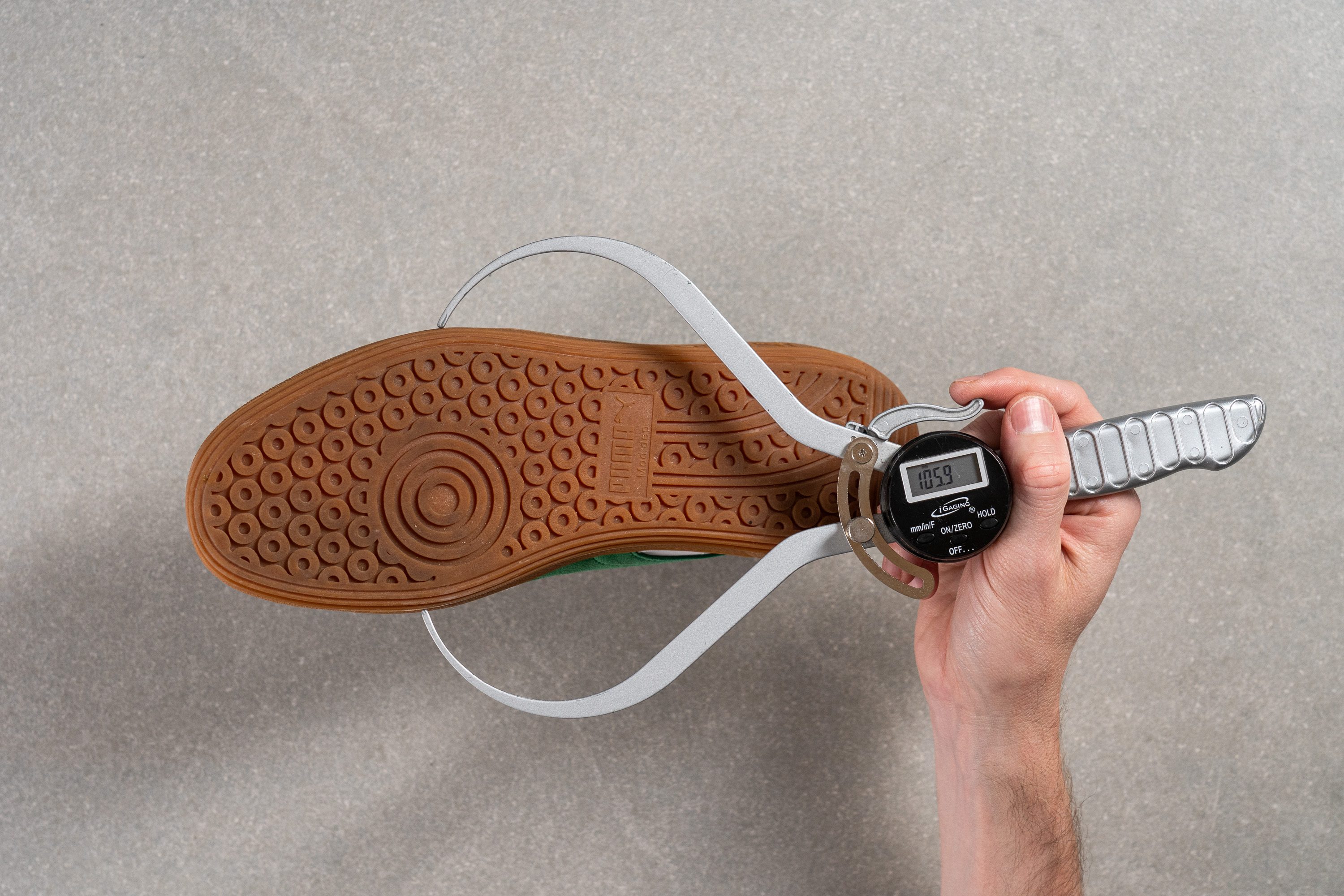
Our calliper recorded 105.9 mm between the widest points of the shoe's sole.
We think that the slightly wider contact area of the PUMA Palermo would be more beneficial for people with flat feet as opposed to the slimmer Adidas kicks.
| Palermo | 105.9 mm |
| Average | 108.9 mm |
Midsole width - heel
Checking the widest area of the shoe's heel, we got 81.9 mm.
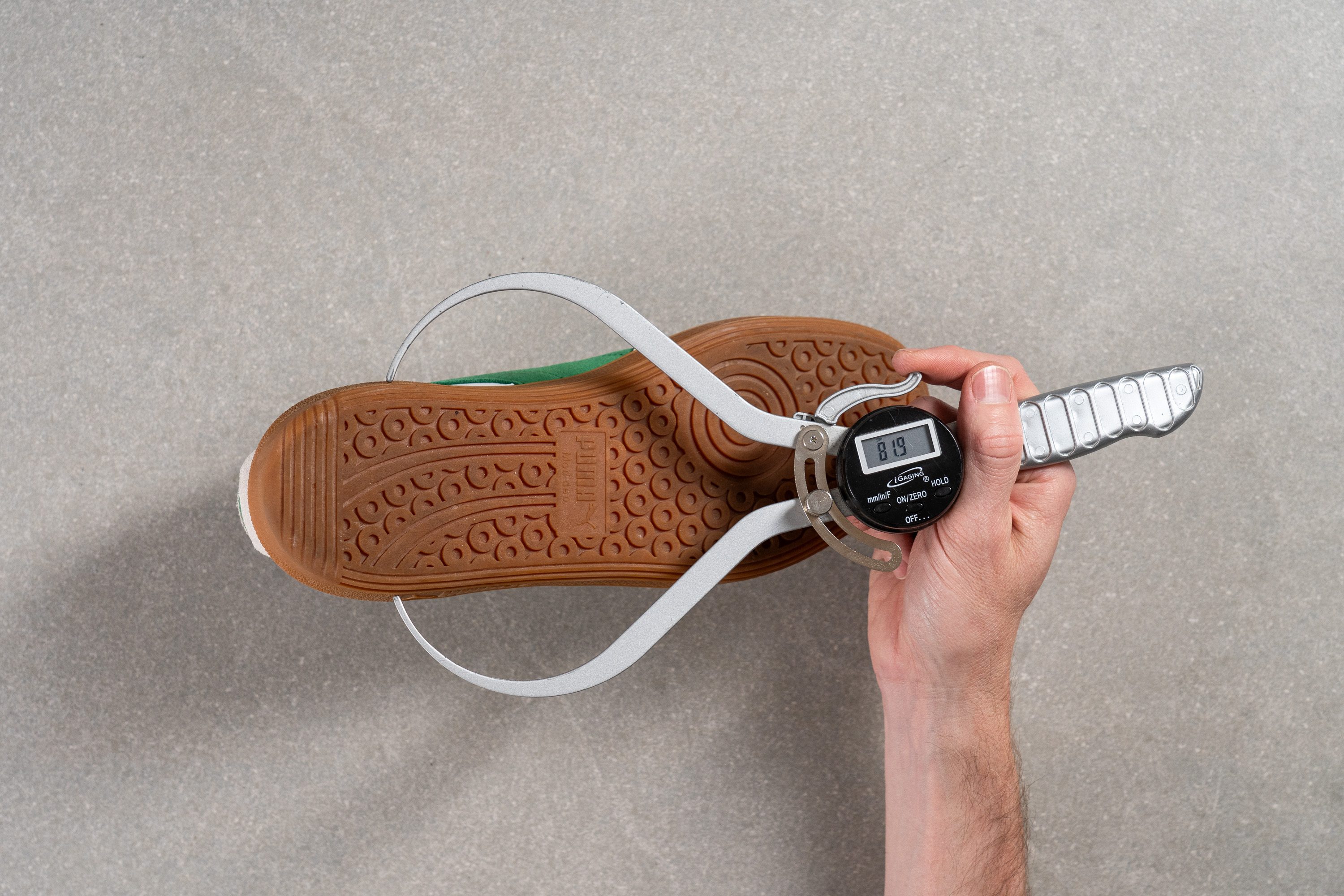
For context, the same measurement showed 72.0 mm on the Adidas Gazelle and 75.4 mm on the Samba.
| Palermo | 81.9 mm |
| Average | 84.0 mm |
Durability
Leather/Suede quality
The Palermo's affordable price point is likely to raise questions about its quality. But luckily we have some good news on that front.
Using a butane torch, we found that neither the shoe's primary leather panel nor its suede patches caught fire like fake material would.
Also, none of the upper parts melted or became gooey like the eyestay in the video above (that's an indication of fake synthetic leather).
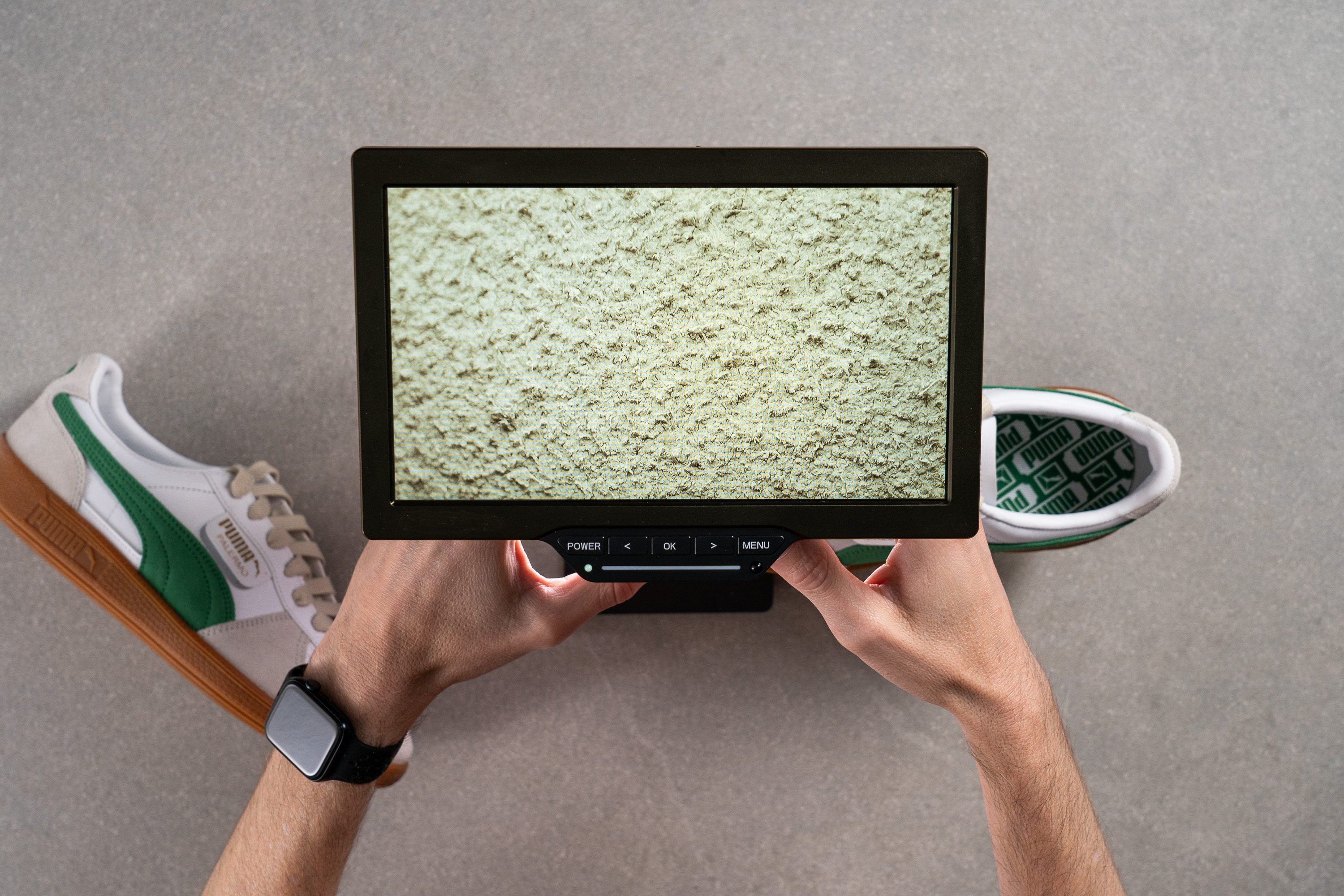
Zooming in on the shoe's suede T-toe through our microscope, we also found that it has a shaggy texture of genuine material.
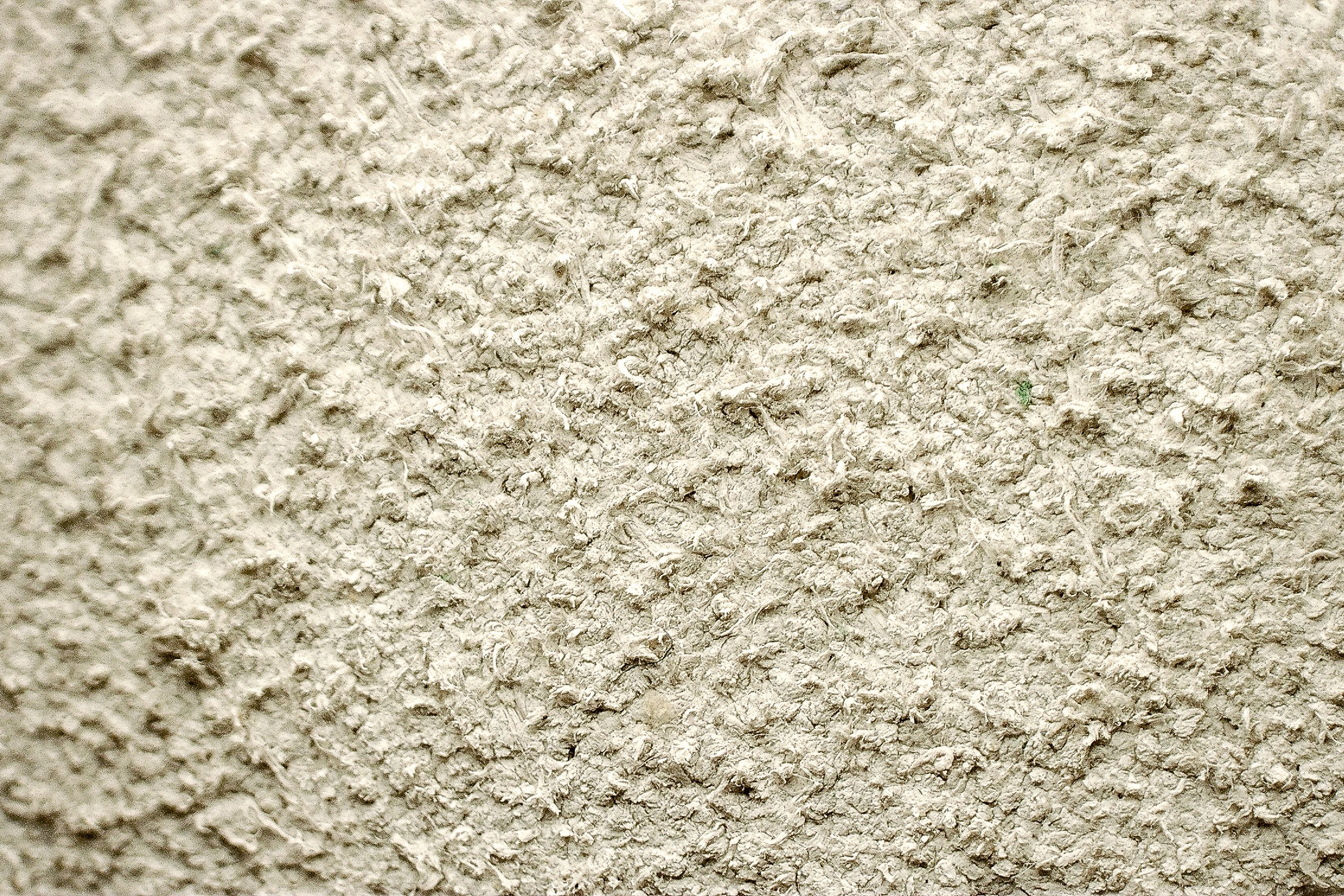
All in all, we are happy that PUMA did not compromise the quality of its upper materials even at such a budget-friendly price.
| Palermo | Real leather |
Toebox durability
Soft to the touch, the Palermo's suede T-toe is not so soft in substance.
Unlike mesh or textile, it hardly gave in to our Dremel. Even after 12 seconds of drilling the material at a 5K RPM speed, the sandpaper failed to burn even halfway through the suede layer.
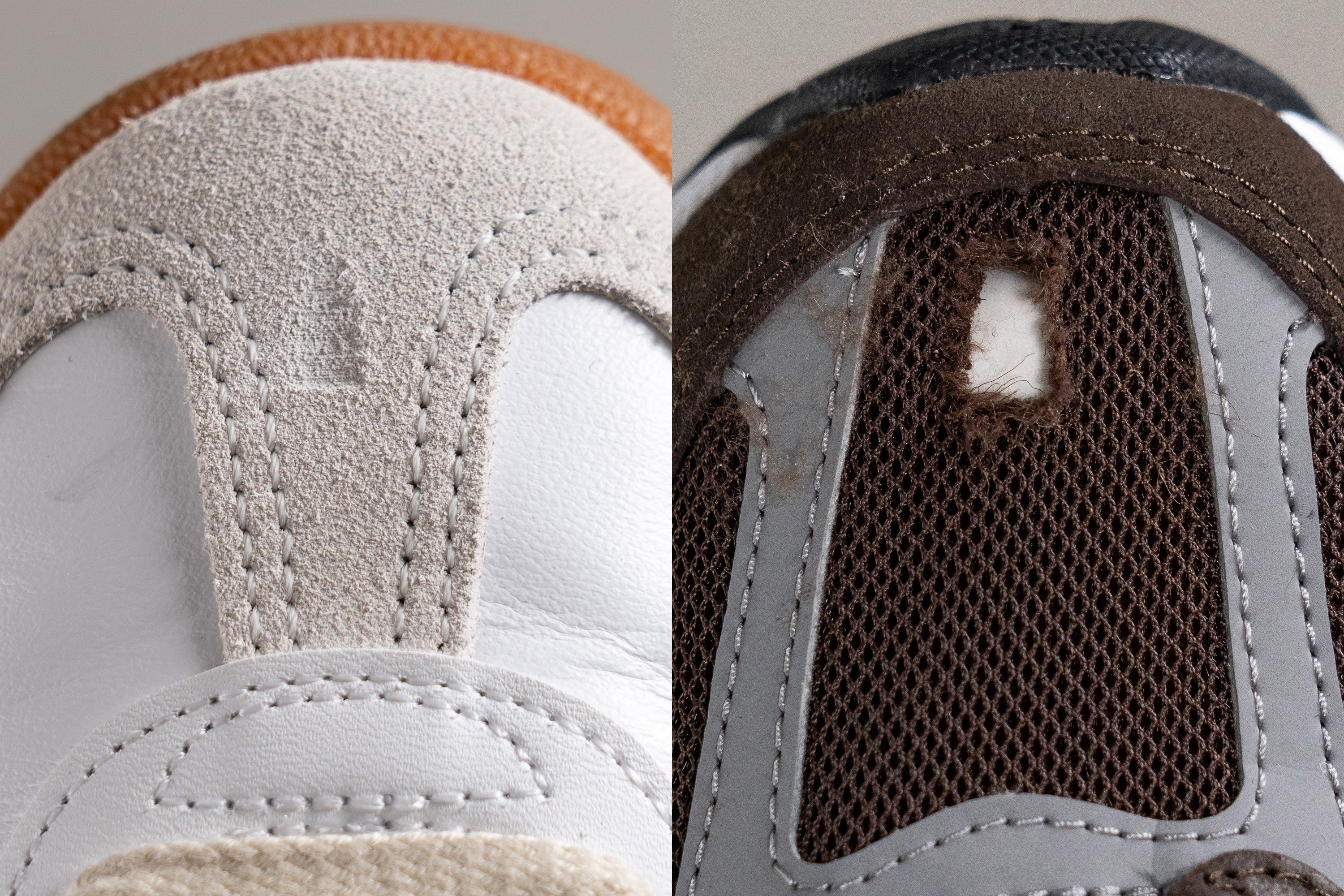
Considering the cosmetic damage, we didn't hesitate to rate the PUMA Palermo's toebox durability with the highest score - 5 out of 5!
| Palermo | 5 |
| Average | 3.7 |
Heel padding durability
The interiors of this PUMA sneaker are lined with pretty basic synthetic leather. Our Dremel test showed that it can hardly sustain prolonged abrasion.
After only 4 seconds of sandpaper exposure, we saw a tear in the contact area. Compared to the results we got in other trainers, the Palermo's heel padding durability deserves only a moderate score of 3 out of 5.
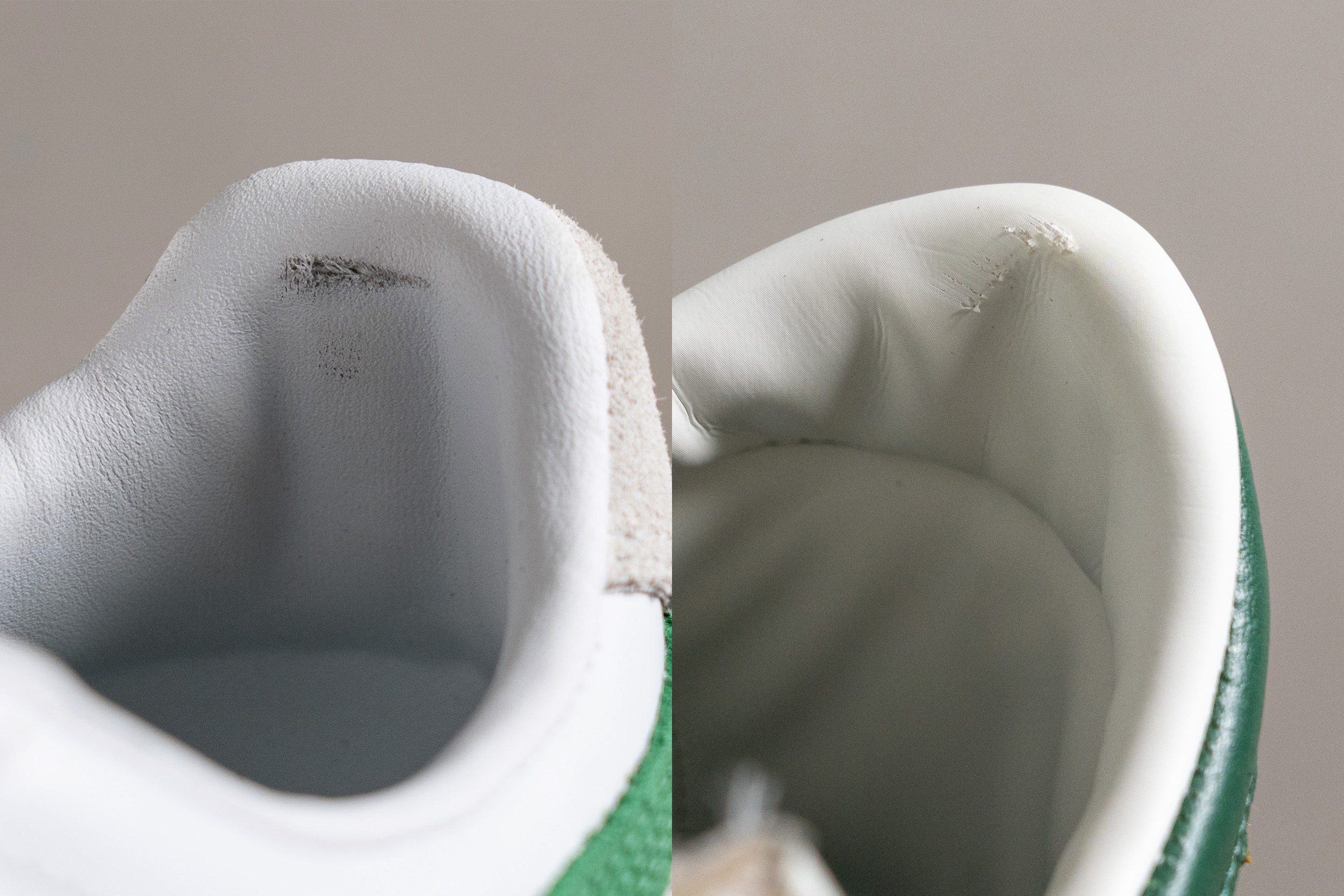
| Palermo | 3 |
| Average | 3.2 |
Outsole hardness
Assessing the gum rubber outsole of the PUMA Palermo, we didn't expect much wear resistance from this soft material. Especially since it proved to be softer than average with a durometer reading of 79.5 HC.
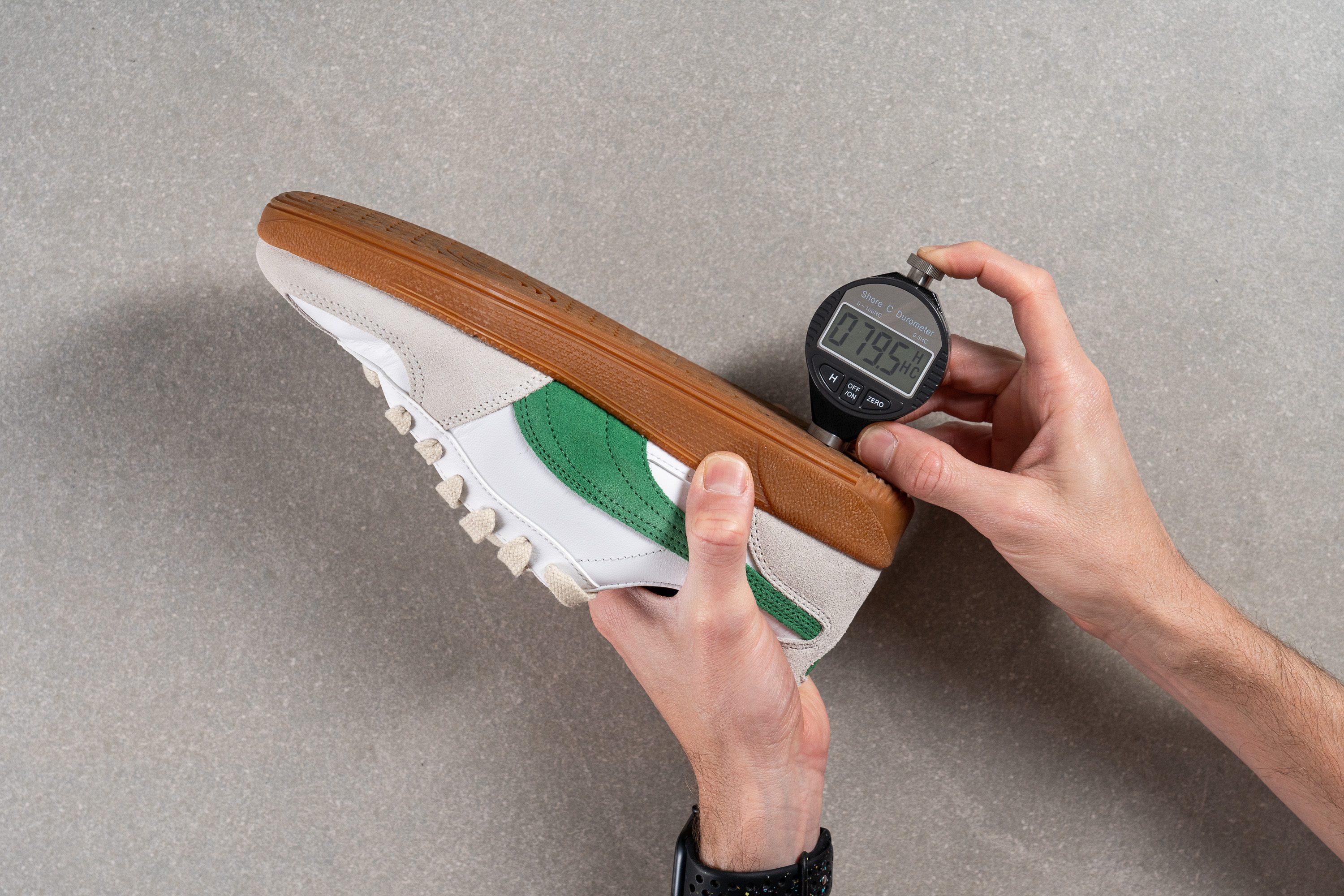
And yet, the gum caught us off guard when we subjected it to our Dremel test...
| Palermo | 79.5 HC |
| Average | 85.7 HC |
Outsole durability
The material proved to be just as sturdy as the black rubber! We were impressed to see a tiny 1.1 mm scuff on the outsole after 22 seconds of drilling it at 10K RPM speed.
This is the same amount of wear as we see on most sneaker outsoles after this durability test.
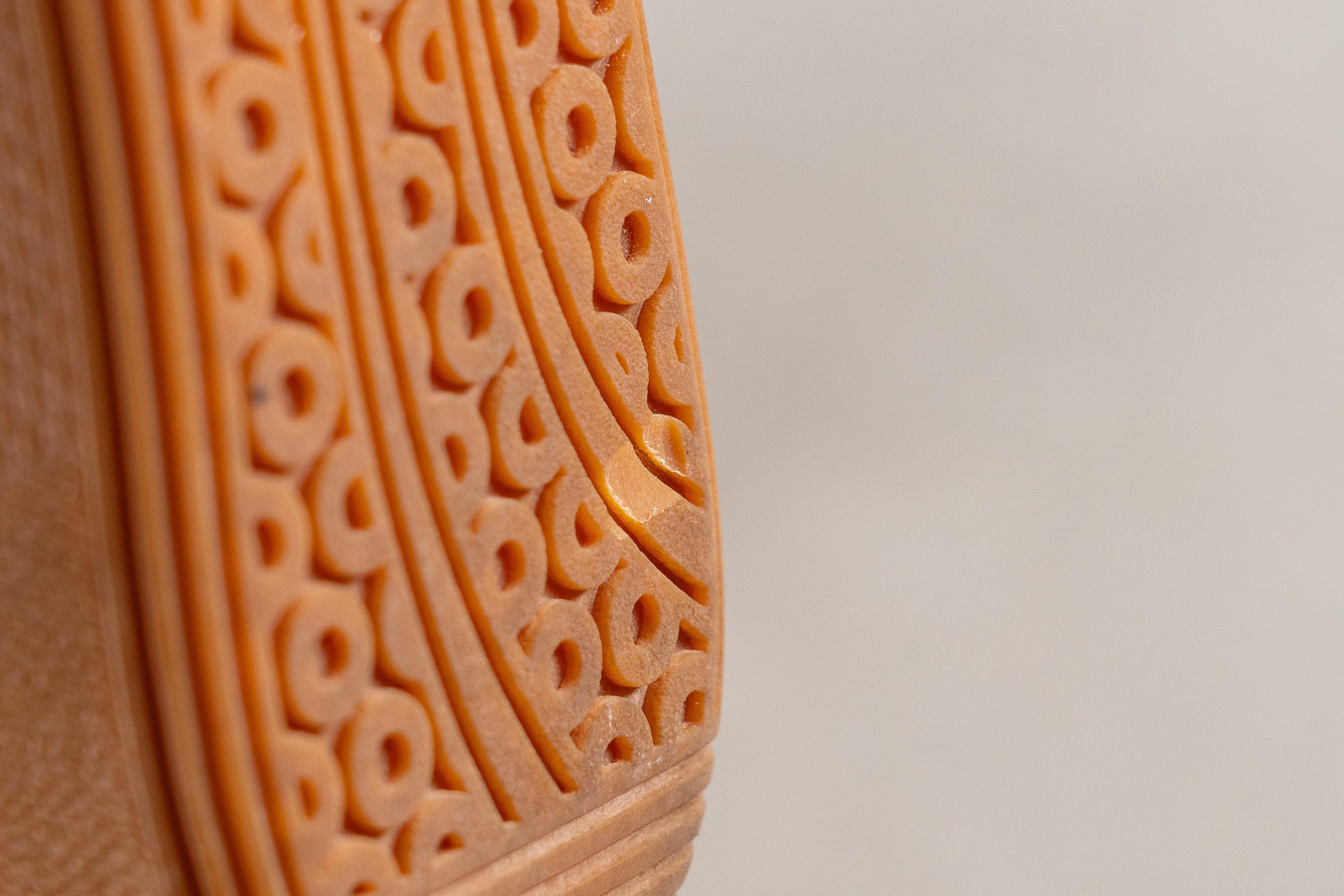
| Palermo | 1.1 mm |
| Average | 1.1 mm |
Outsole thickness
That's why we are not particularly worried about the fact that the Palermo's outsole is 1 mm thinner than average.
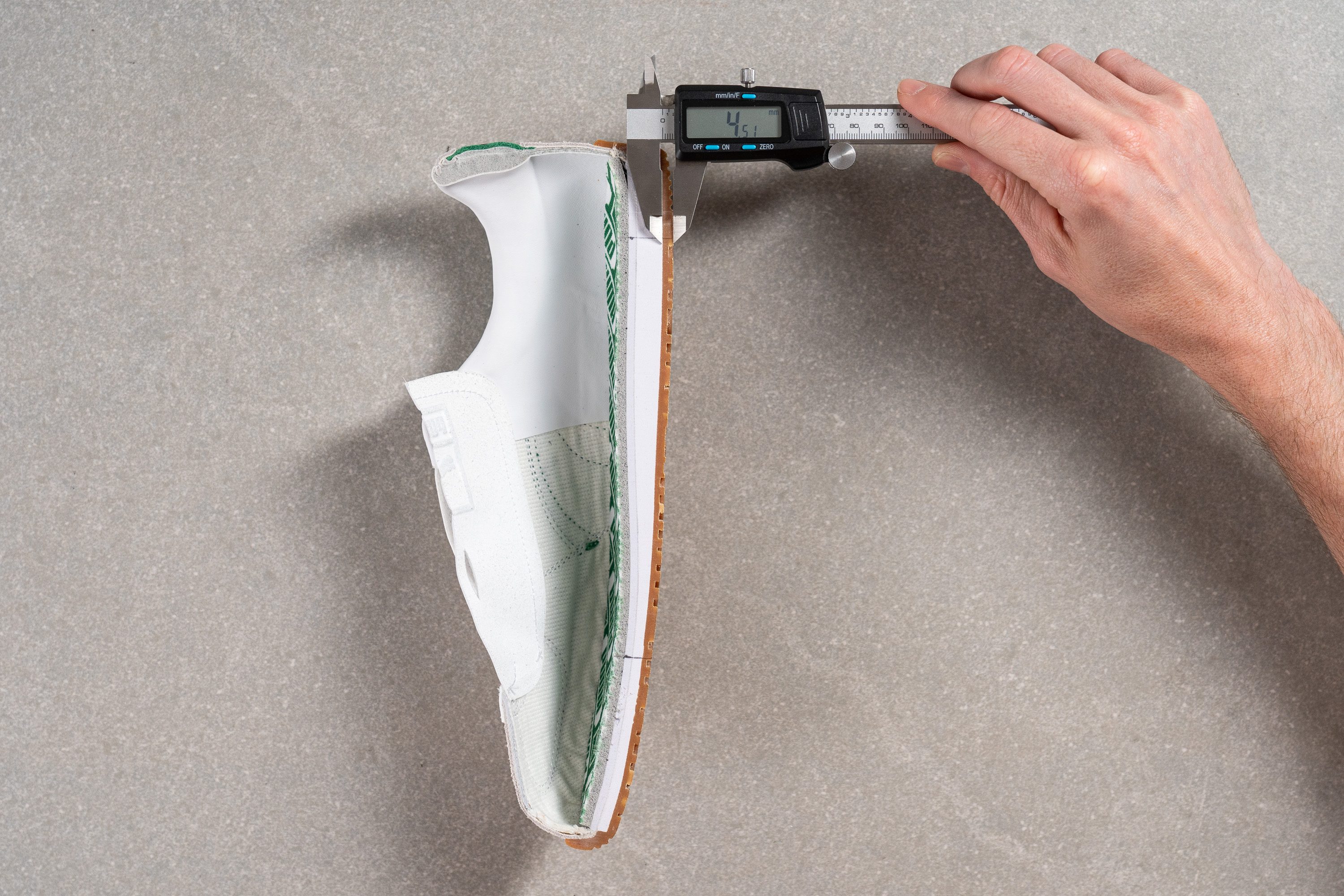
With 4.5 mm of wear-resistant rubber, we expect an average outsole lifespan from this PUMA sneaker.
| Palermo | 4.5 mm |
| Average | 5.3 mm |
Misc
Insole thickness
To save the day, a padded insole makes the Palermo feel a little less like a brick underfoot.
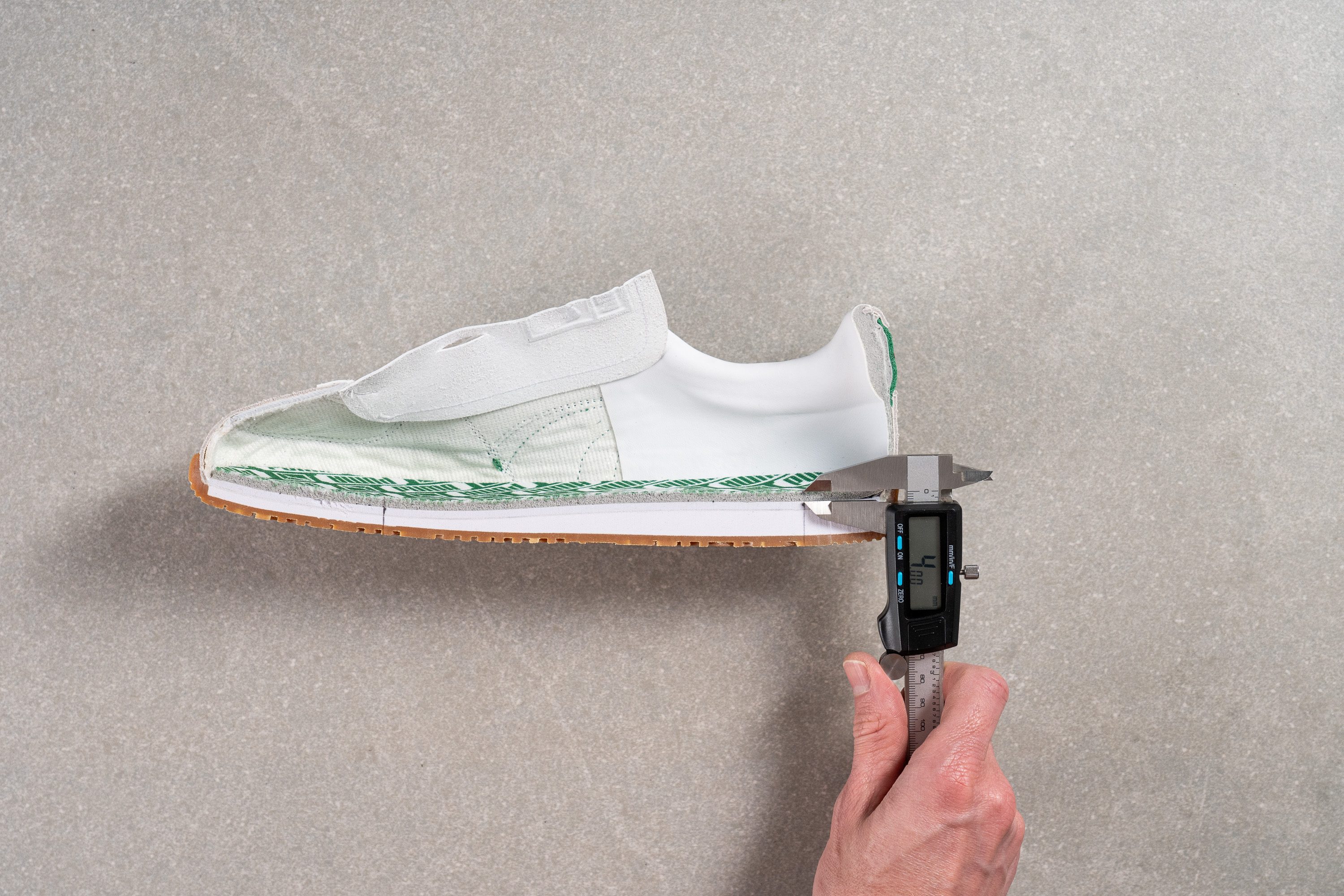
Measuring its thickness with a calliper returned a regular reading of 4.0 mm.
| Palermo | 4.0 mm |
| Average | 5.1 mm |
Removable insole
The entire insole of the PUMA Palermo is glued to the strobel. This makes it tricky to insert any custom orthotics to elevate the sneaker's comfort and step-in feel.
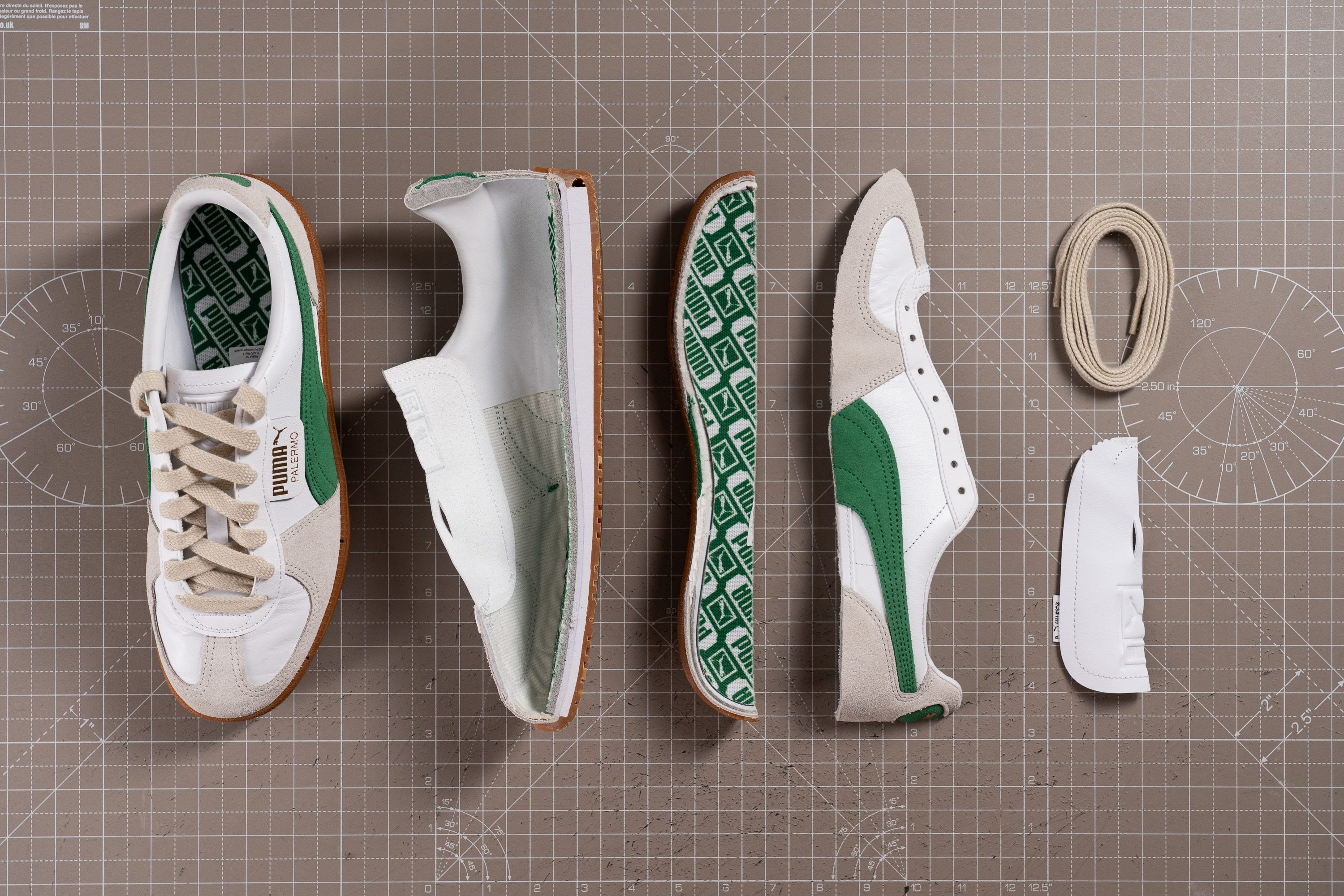
| Palermo | No |
Reflective elements
None of the upper elements on the Palermo are made of reflective material. No shining in the dark with this sneaker.
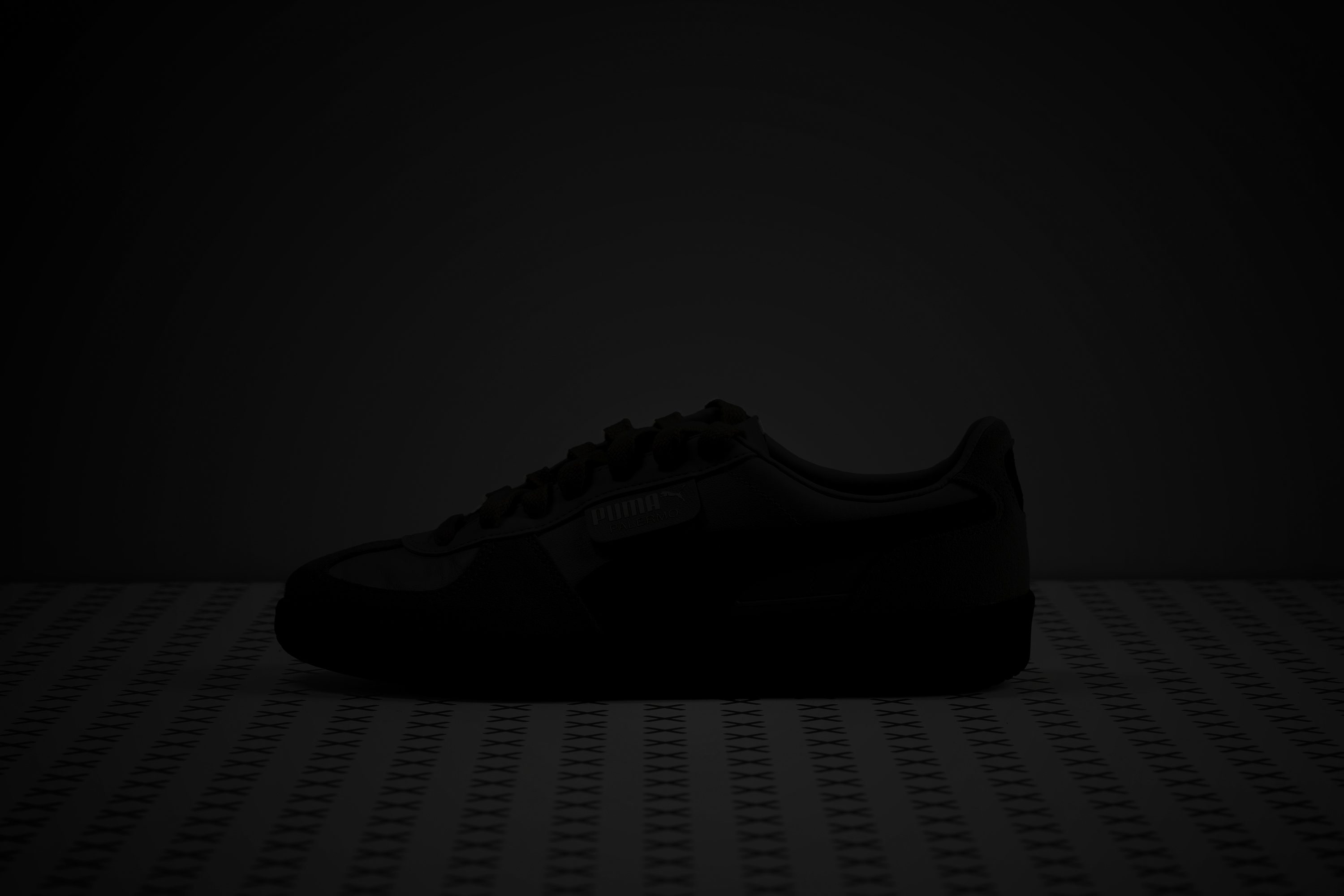
| Palermo | No |
Tongue padding
The in-shoe padding is practically non-existent in the PUMA Palermo. Its paper-thin tongue returned as little as 1.3 mm on our calliper.
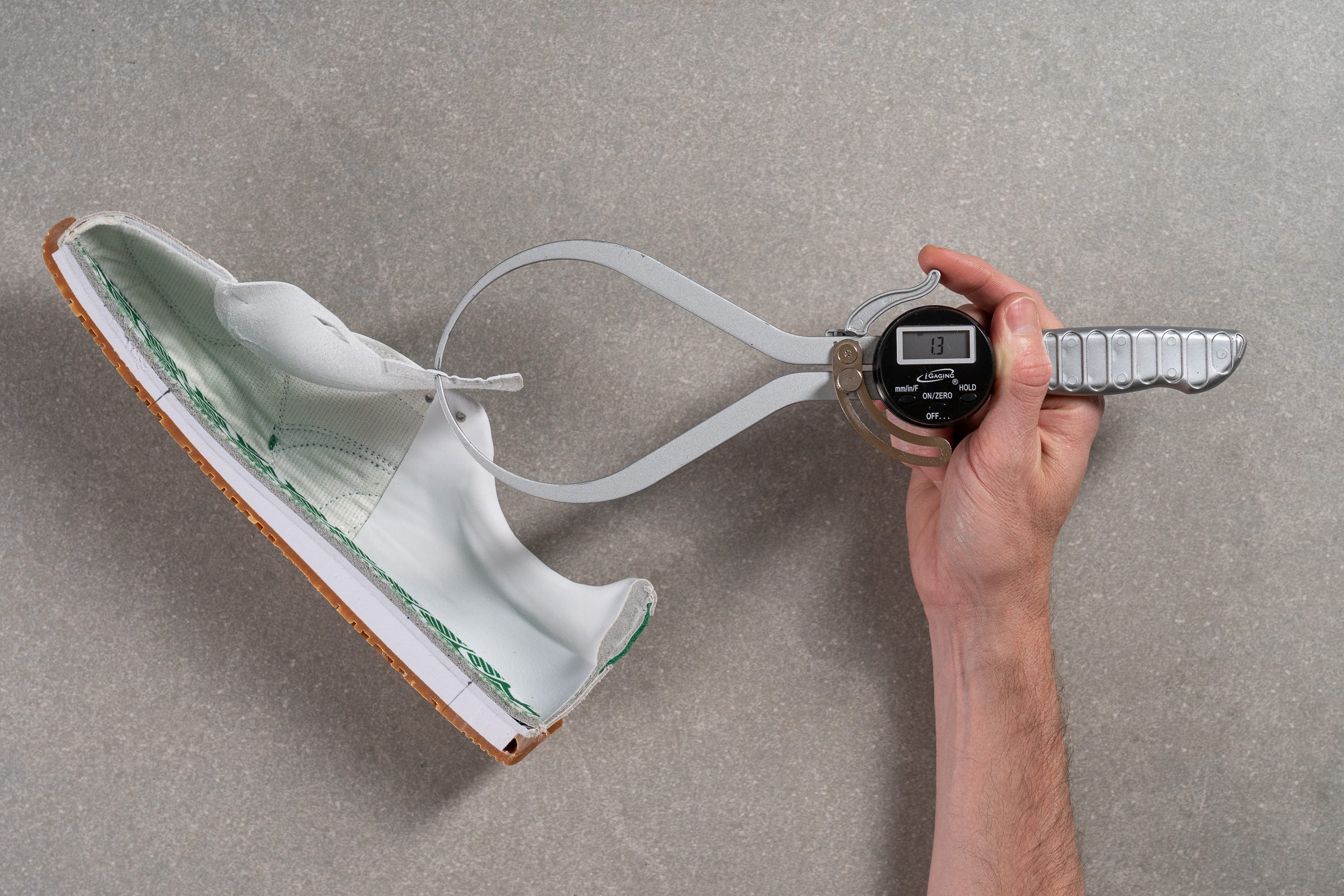
It is some of the thinnest tongues we've seen on a sneaker, similar to the one in the Converse Chuck 70.
| Palermo | 1.3 mm |
| Average | 9.6 mm |
Heel tab
The Palermo doesn't have any finger loops or pull tabs attached.
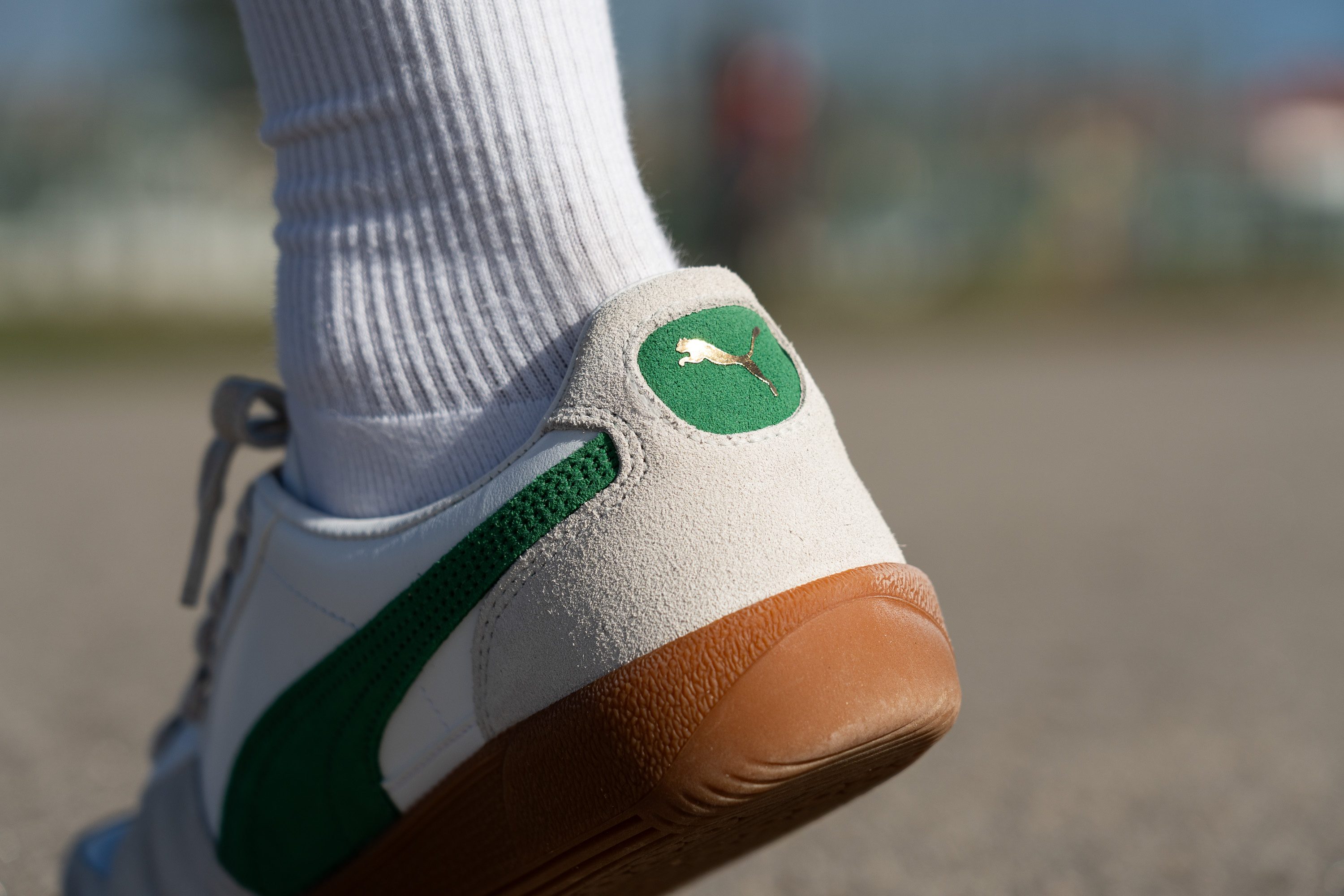
| Palermo | None |
Price
We consider the PUMA Palermo's price to be fair for what the kick has to offer. It is on par with the other popular terrace trainers from Adidas (Samba and Gazelle) and is fairly easy to cop at a discount.
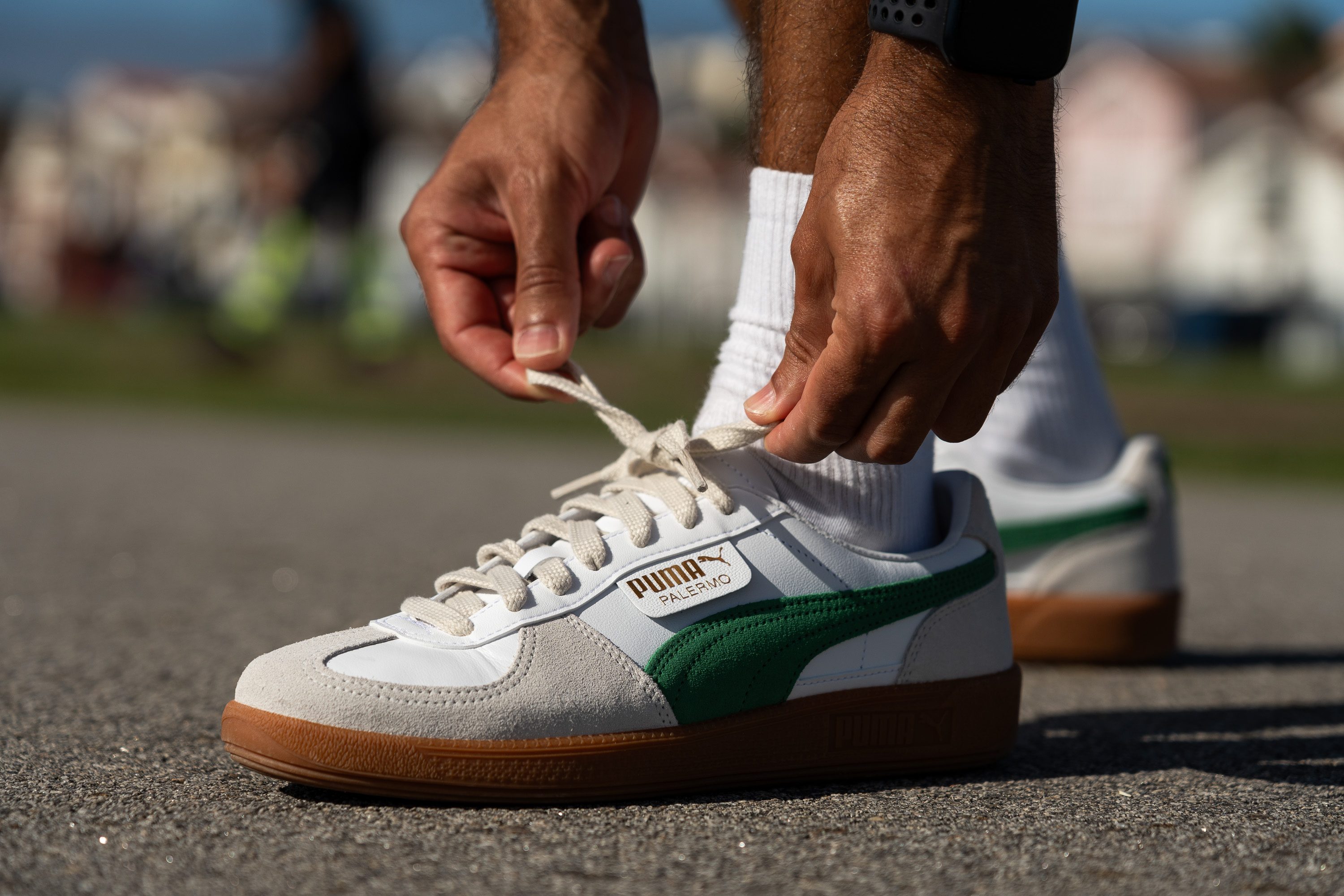
The use of real leather and suede on the upper is a bonus for sure.
| Palermo | $90 |

